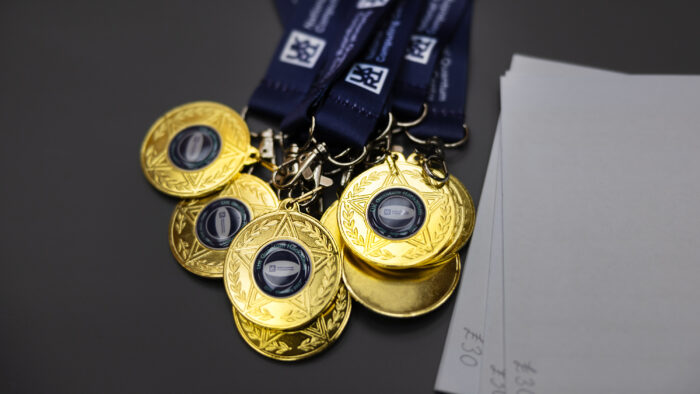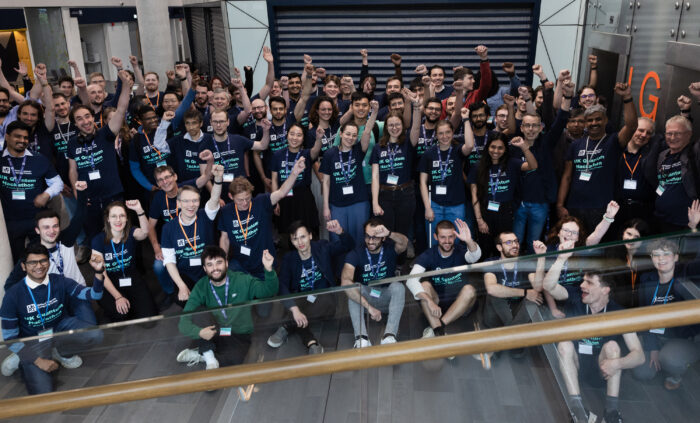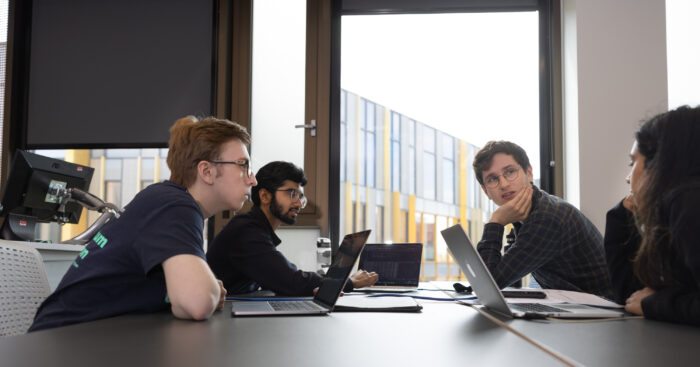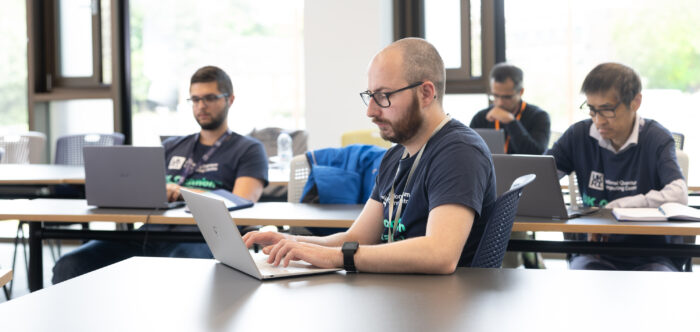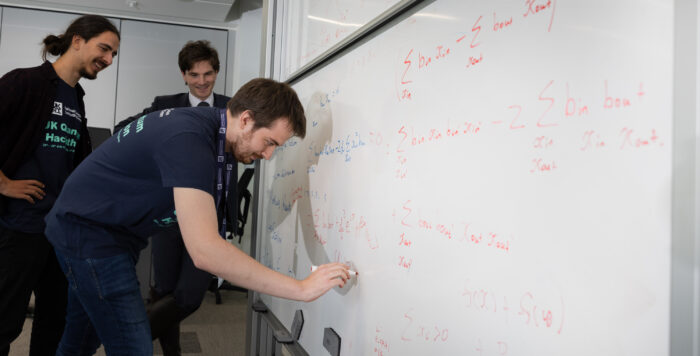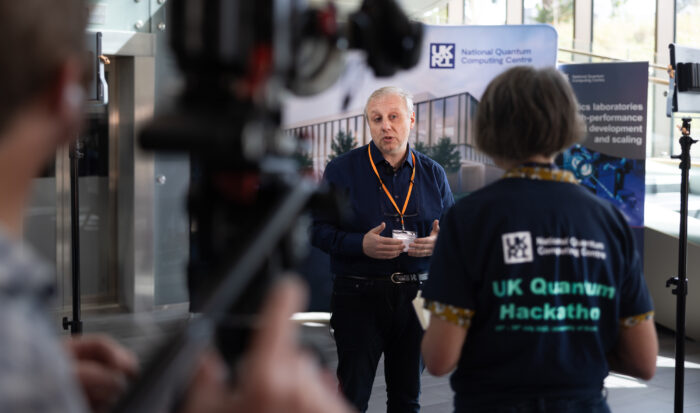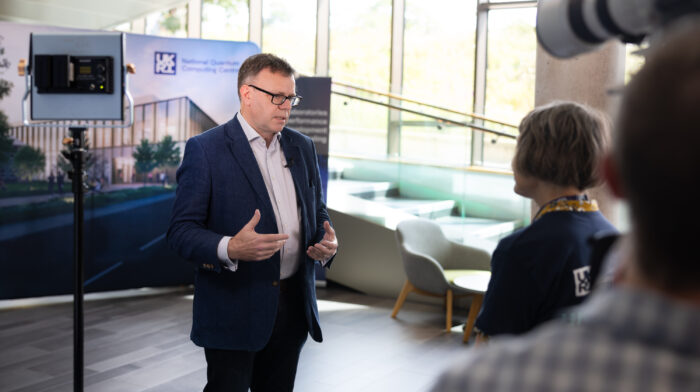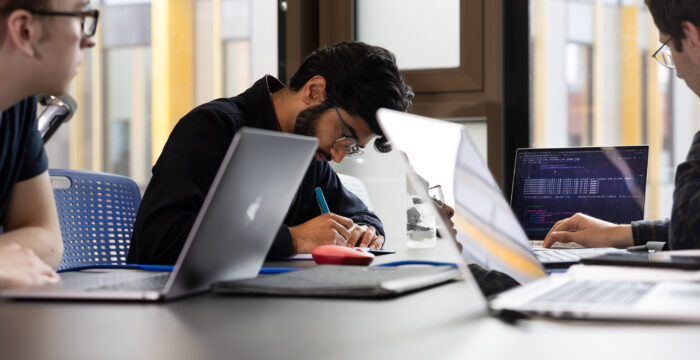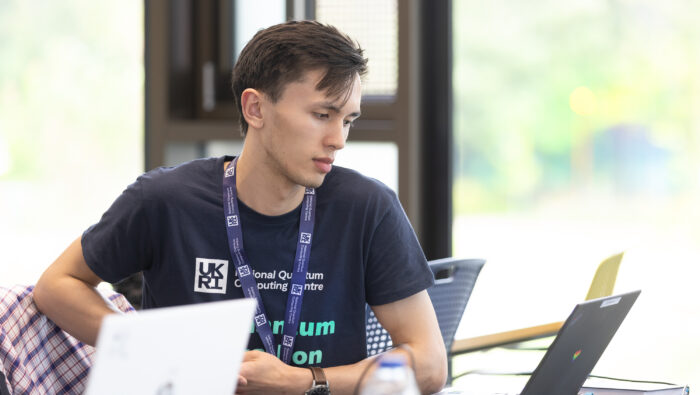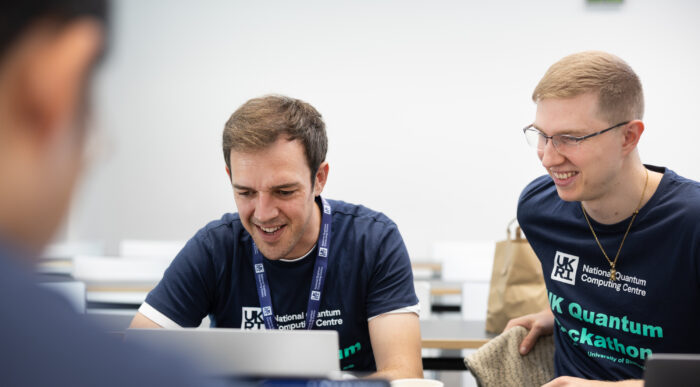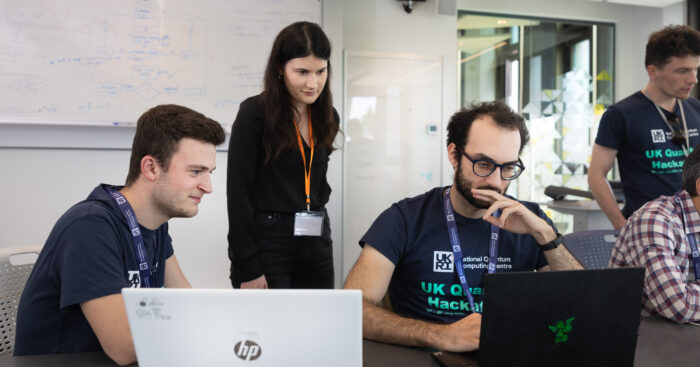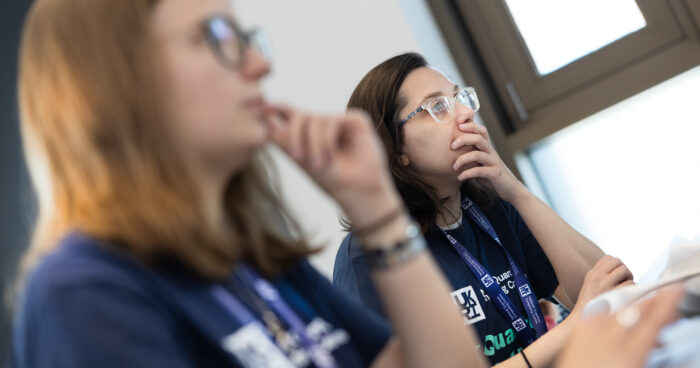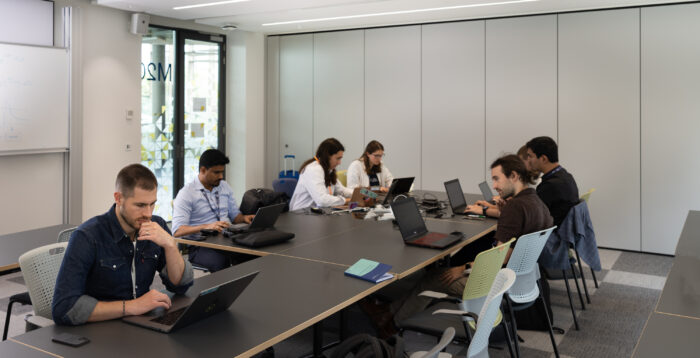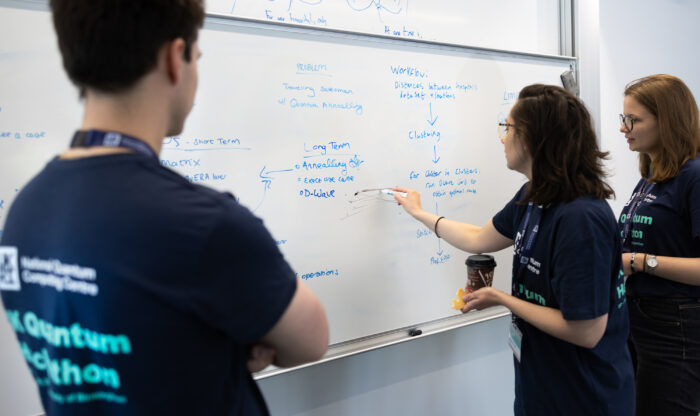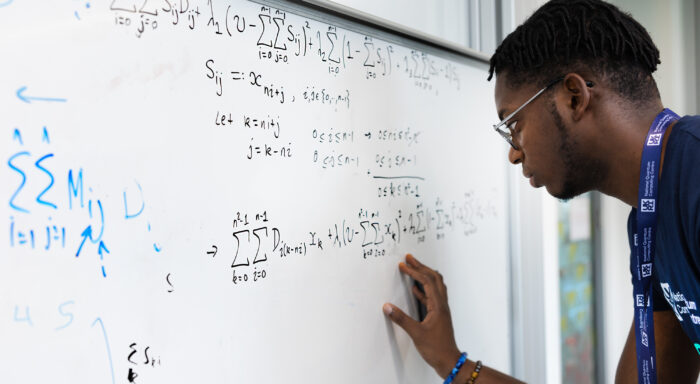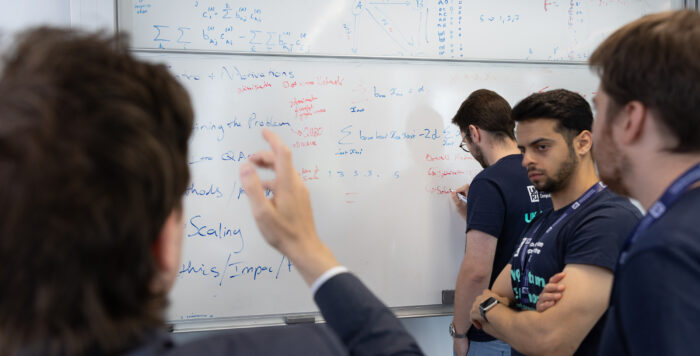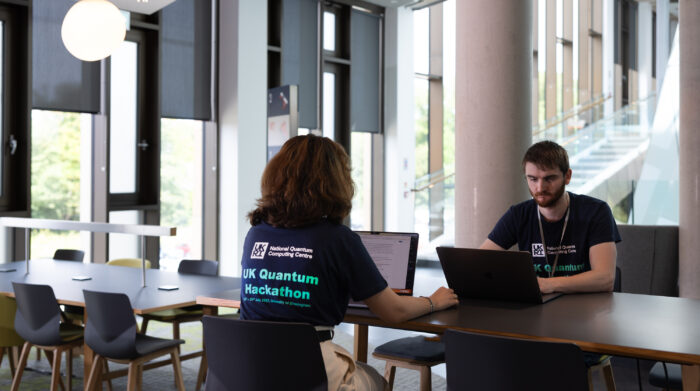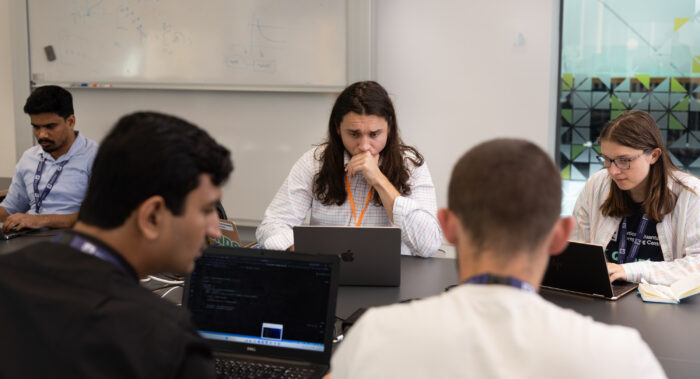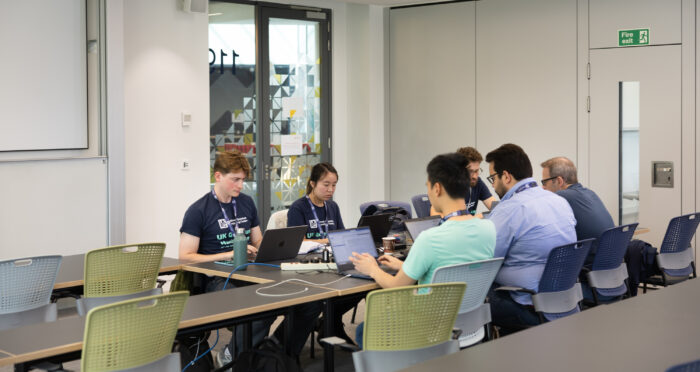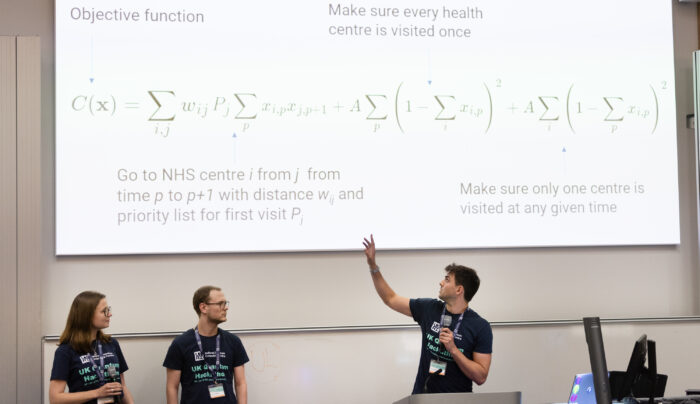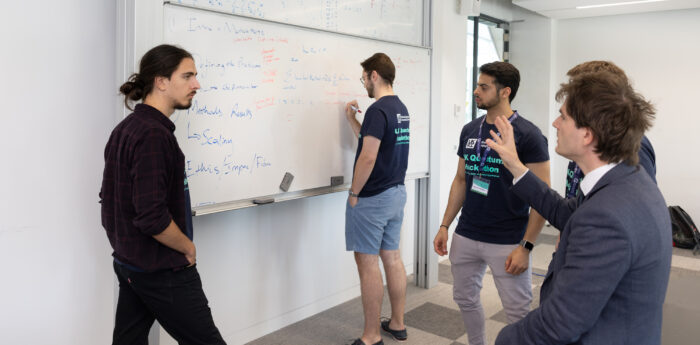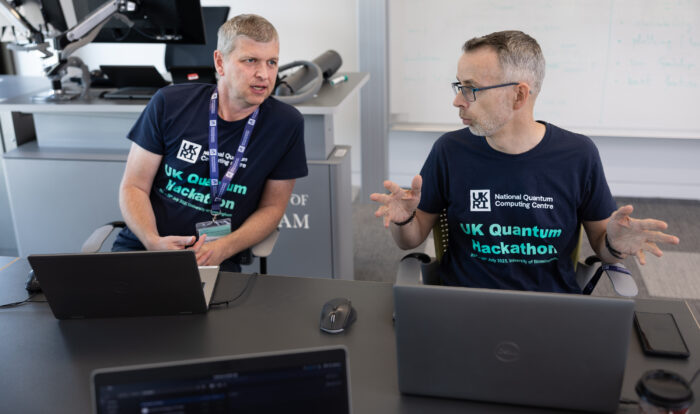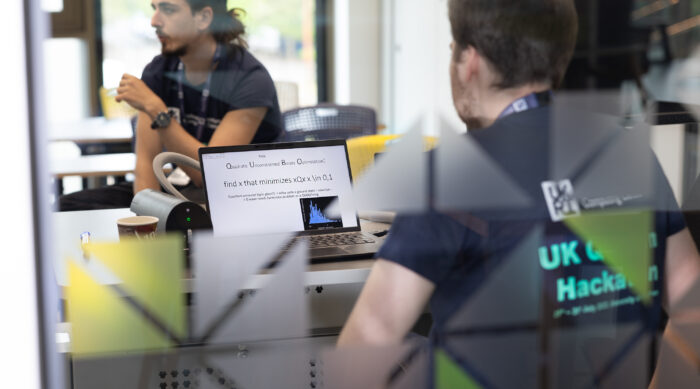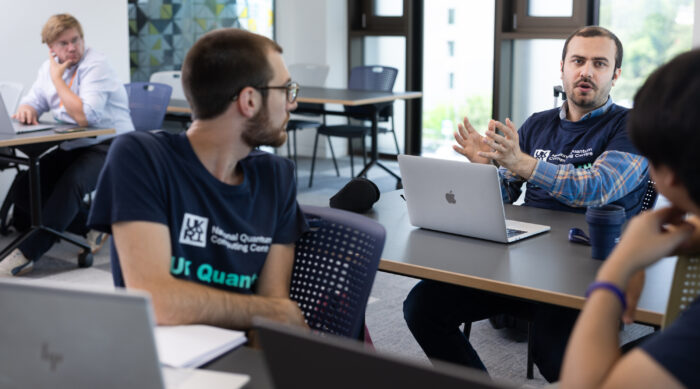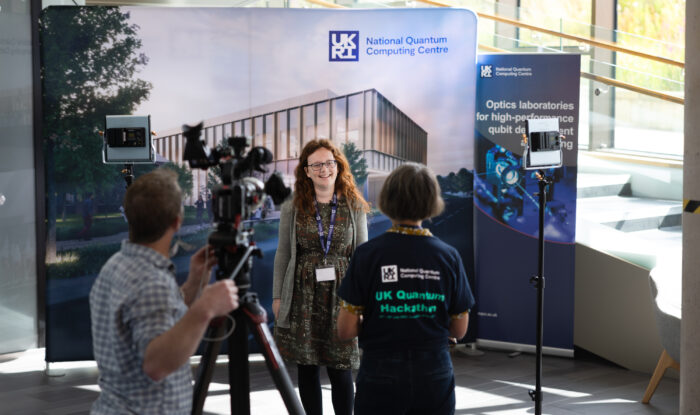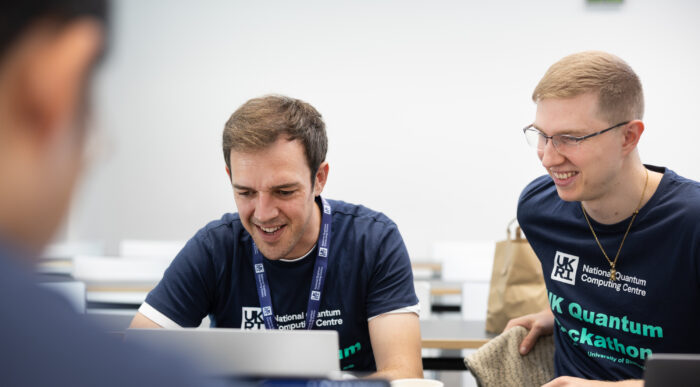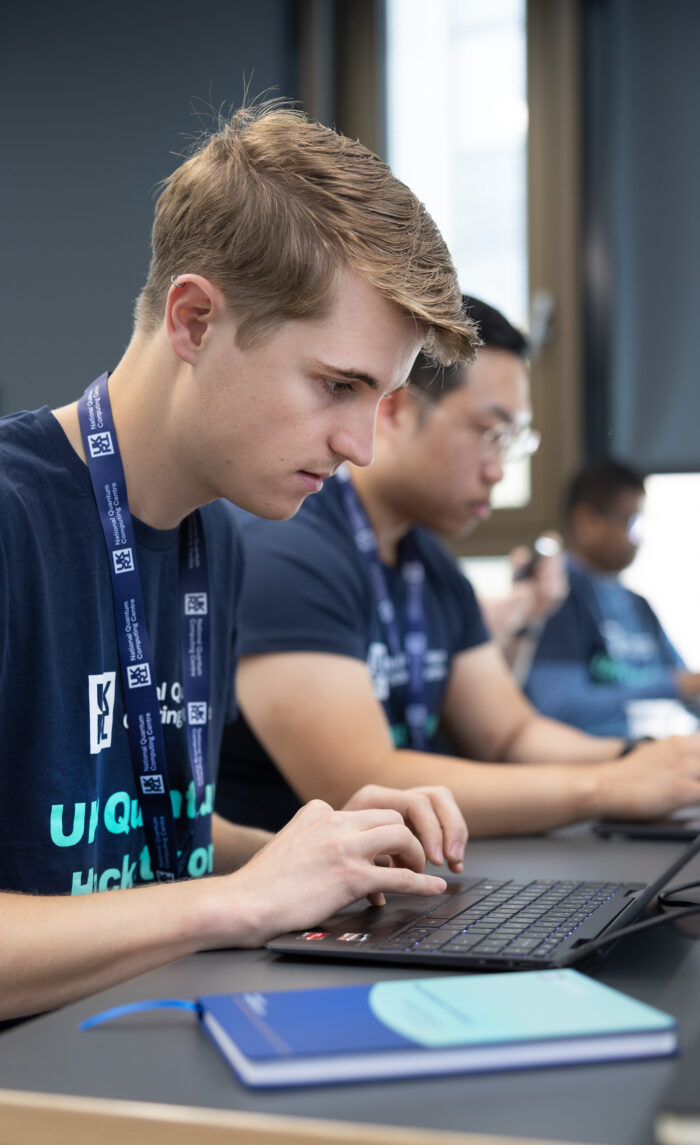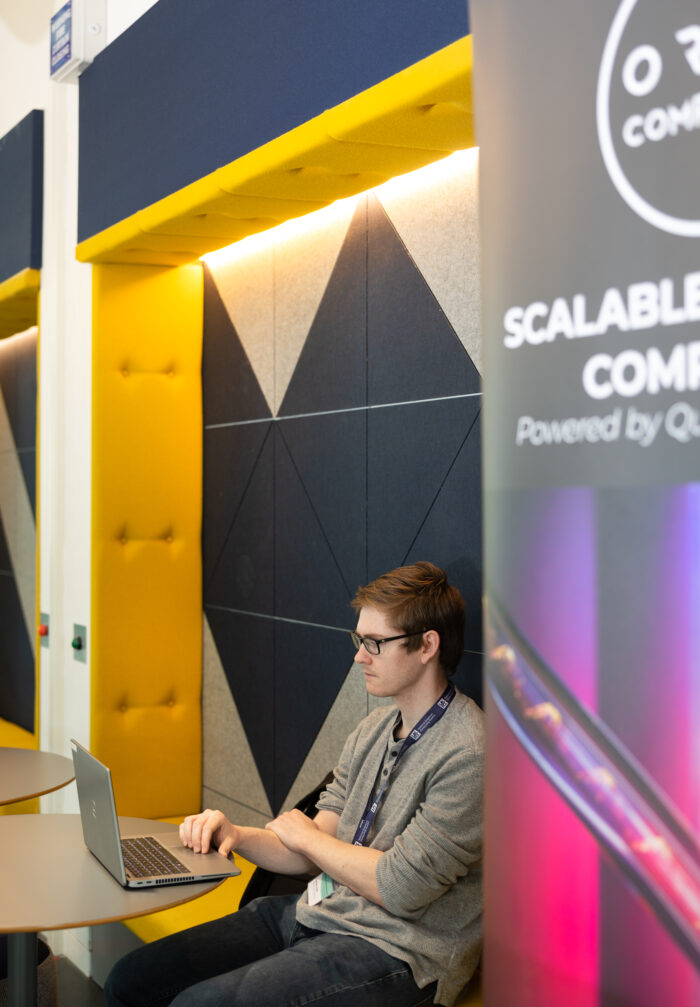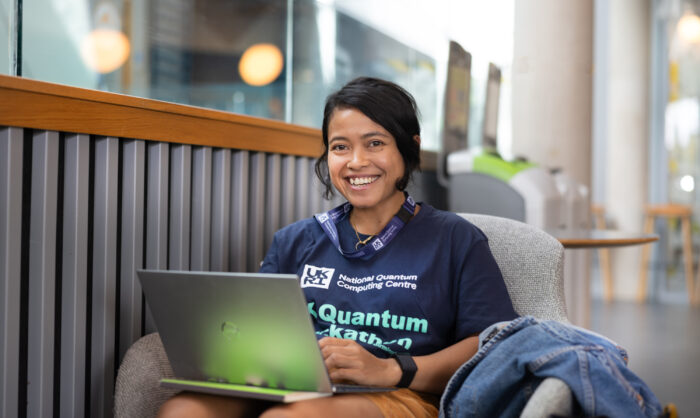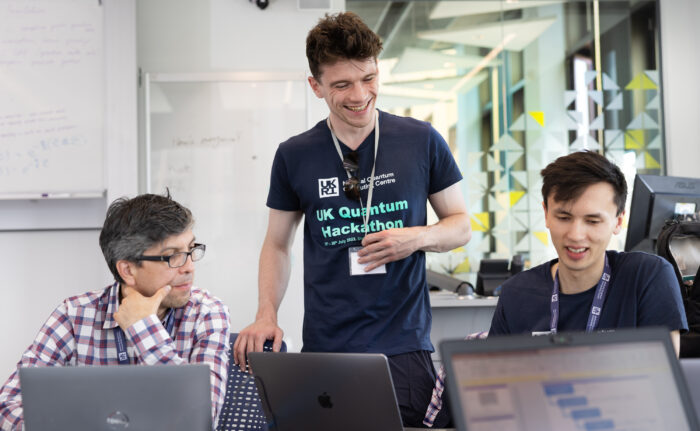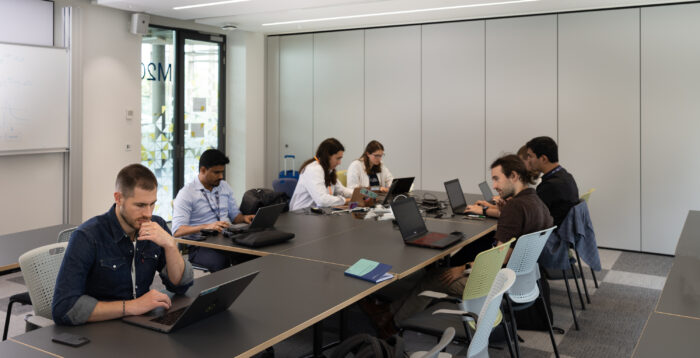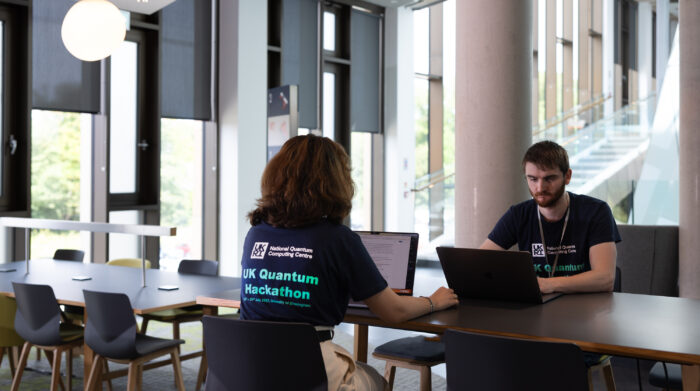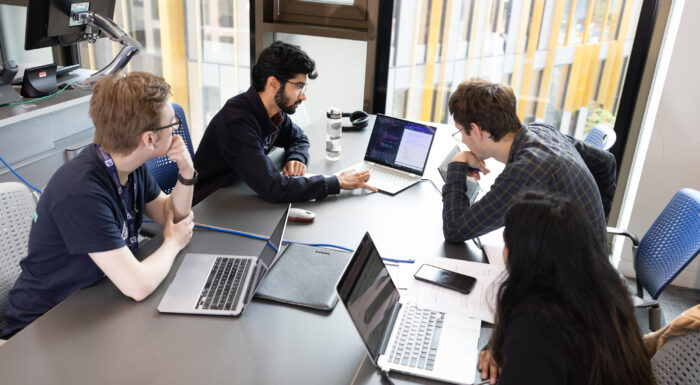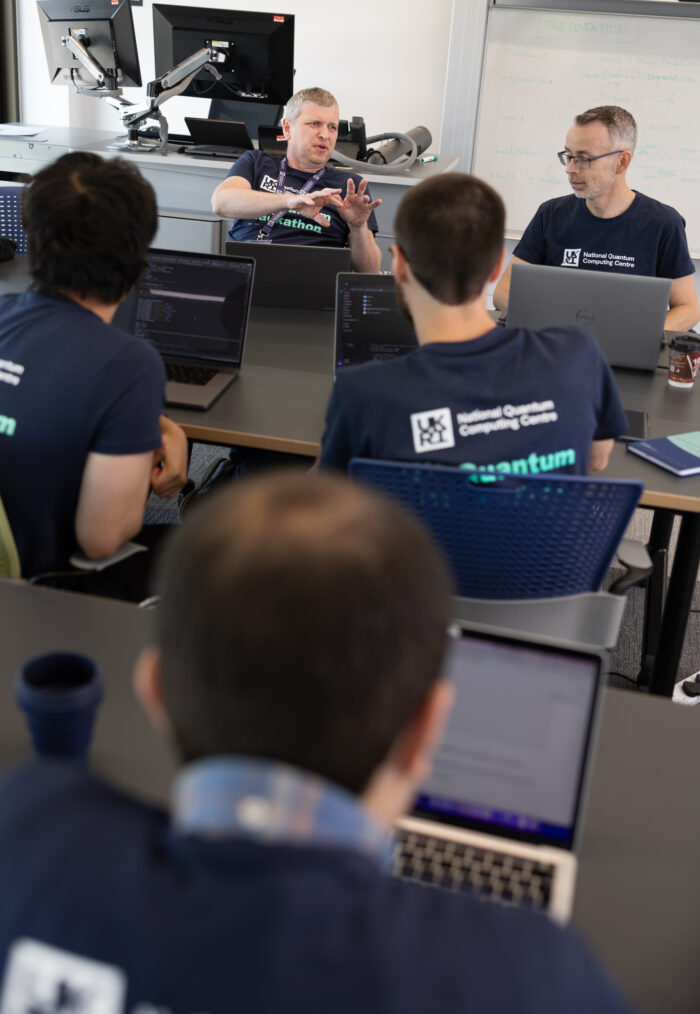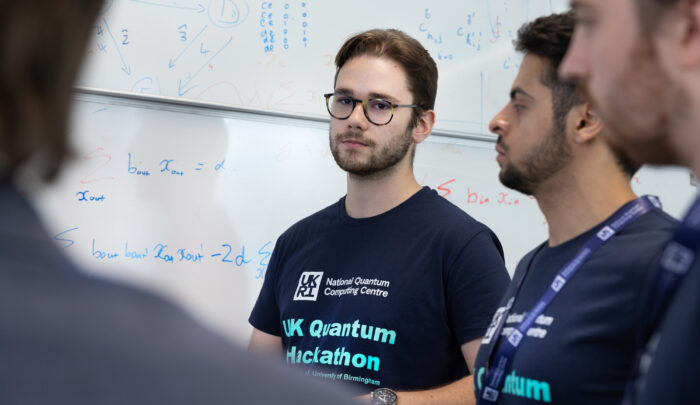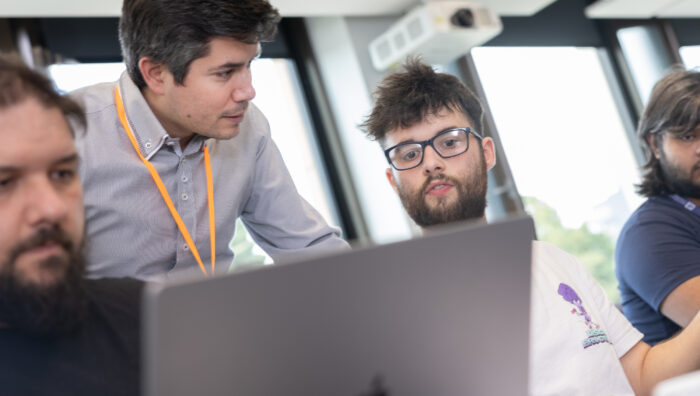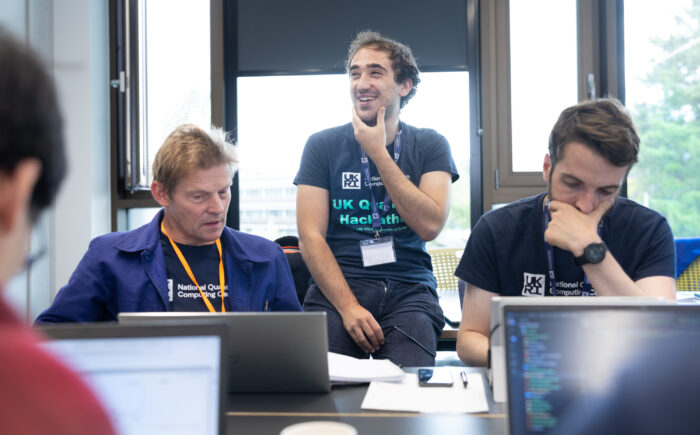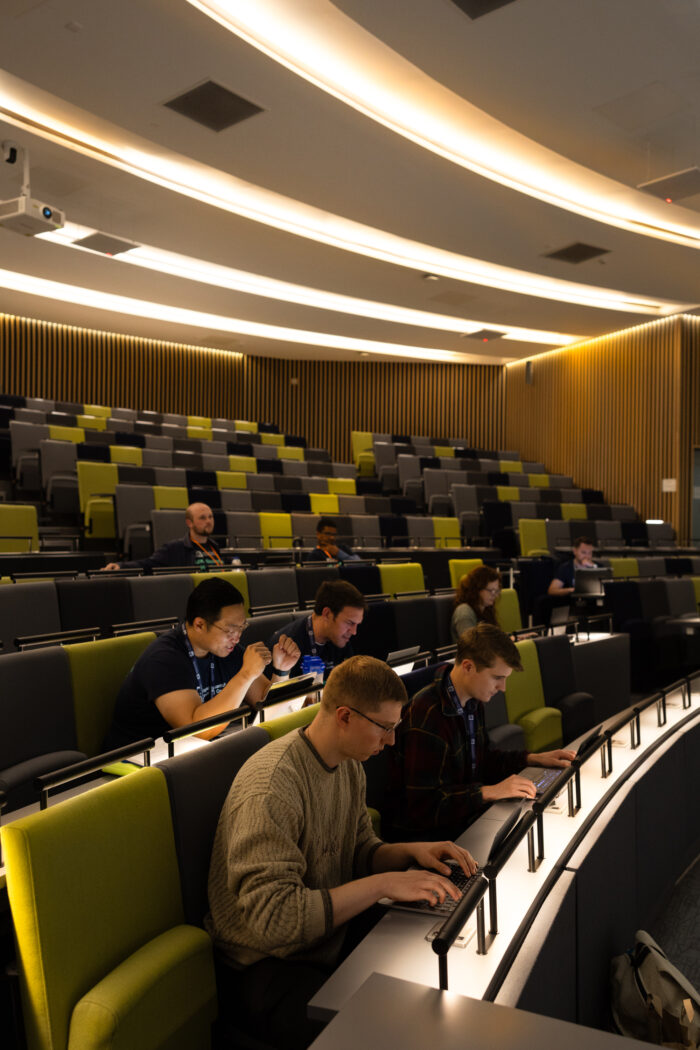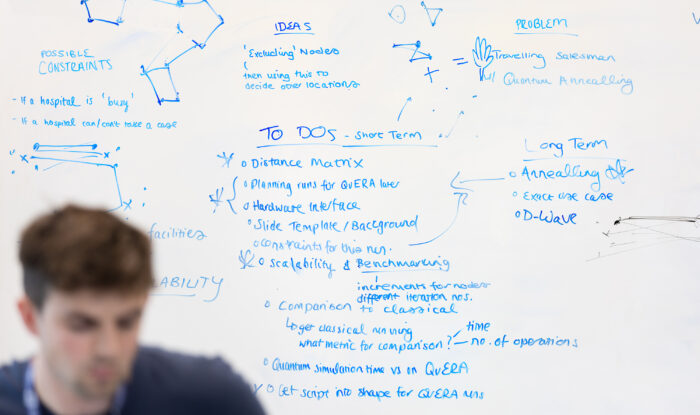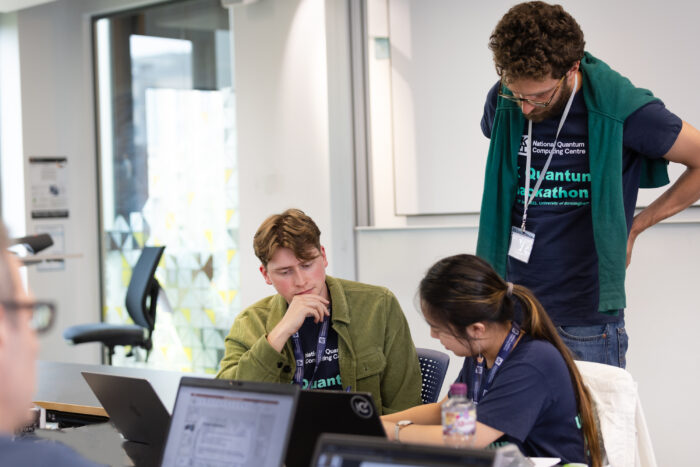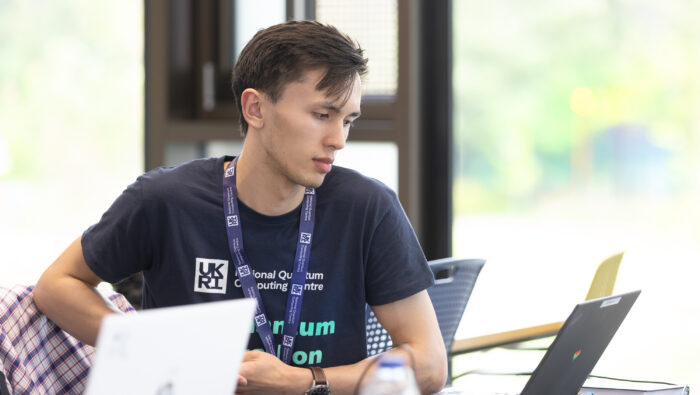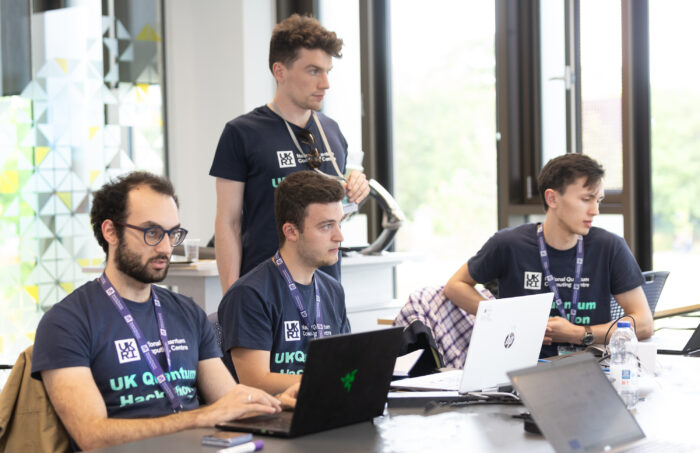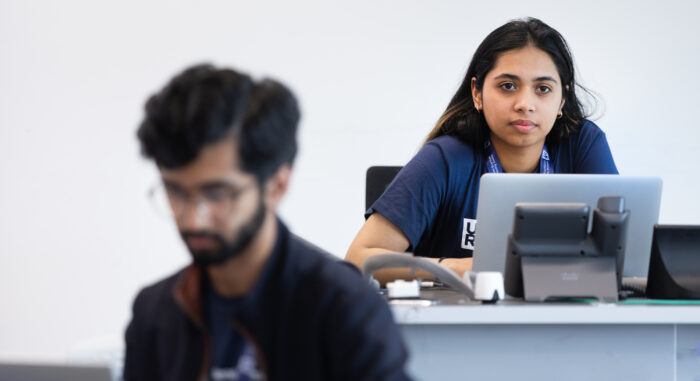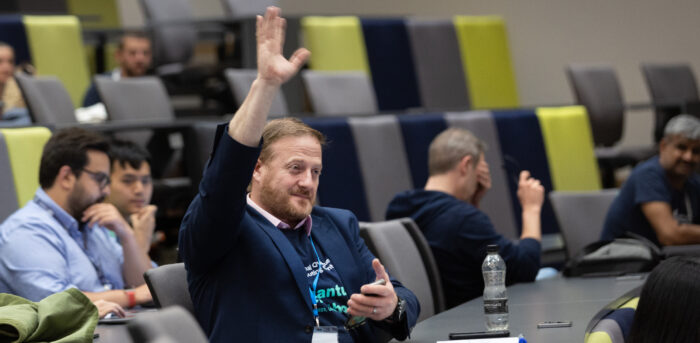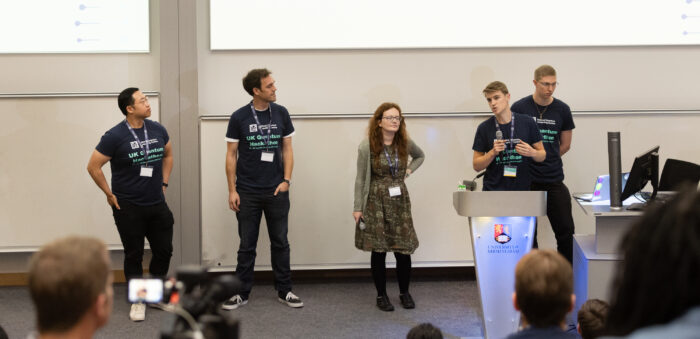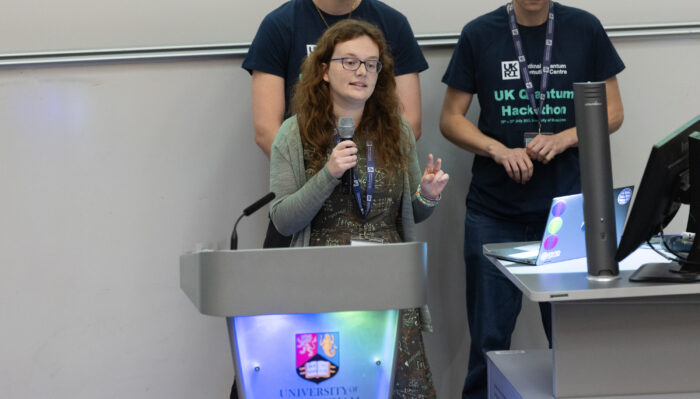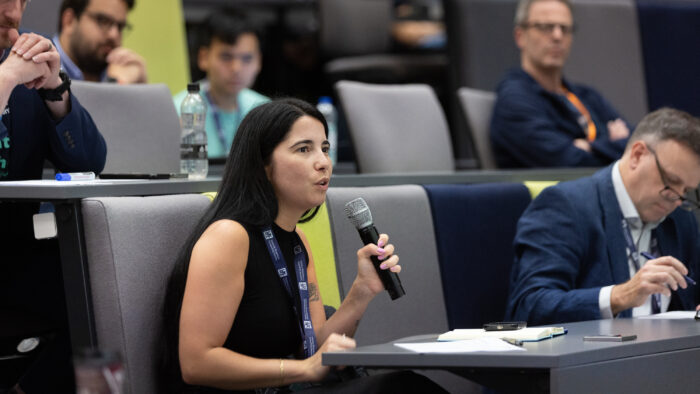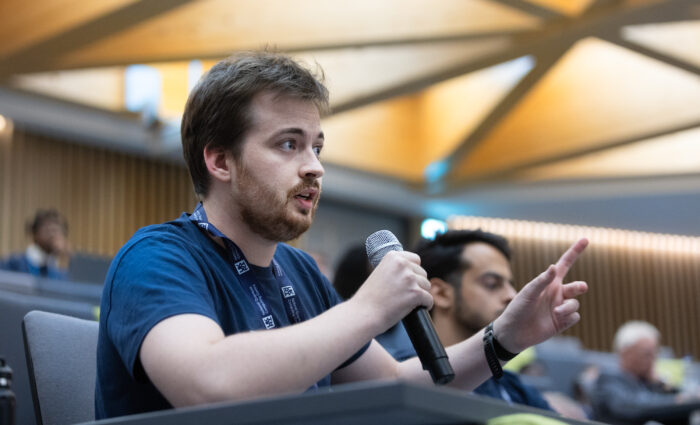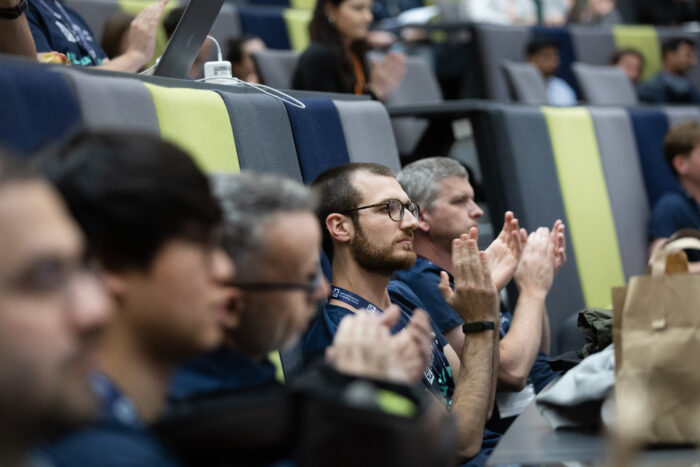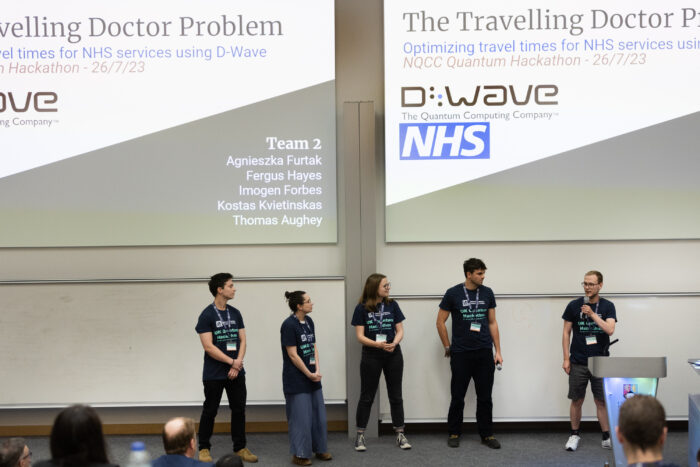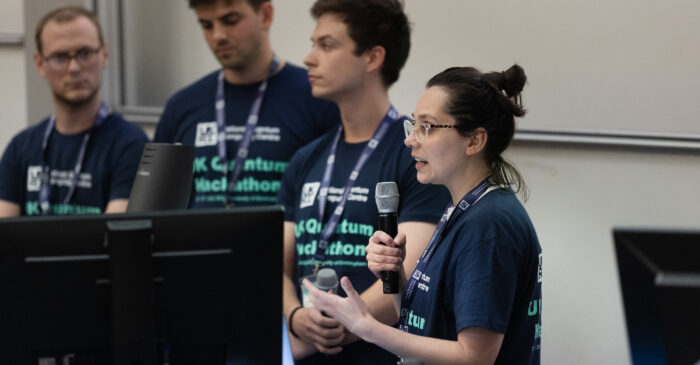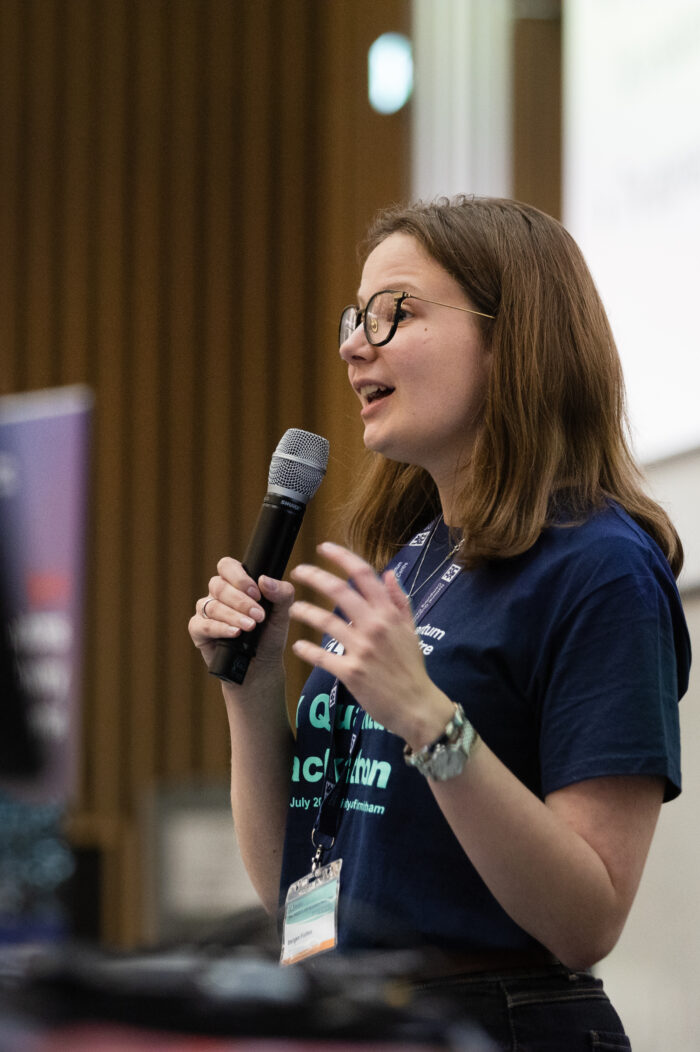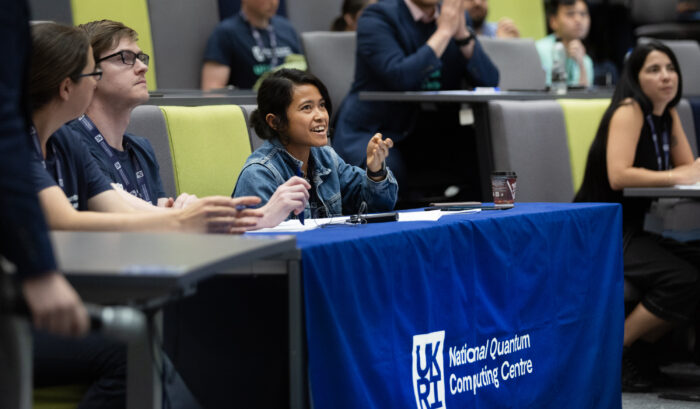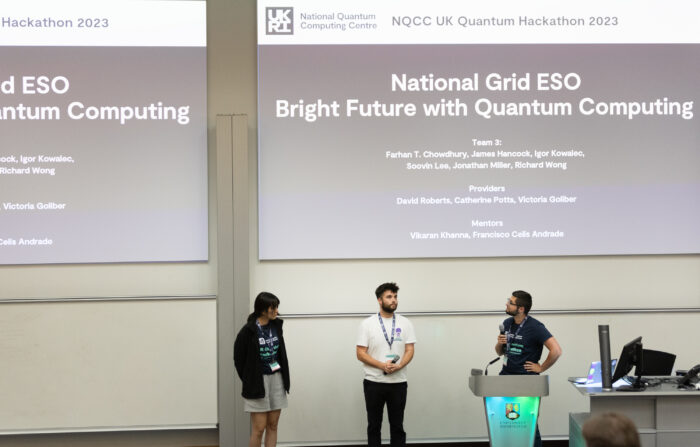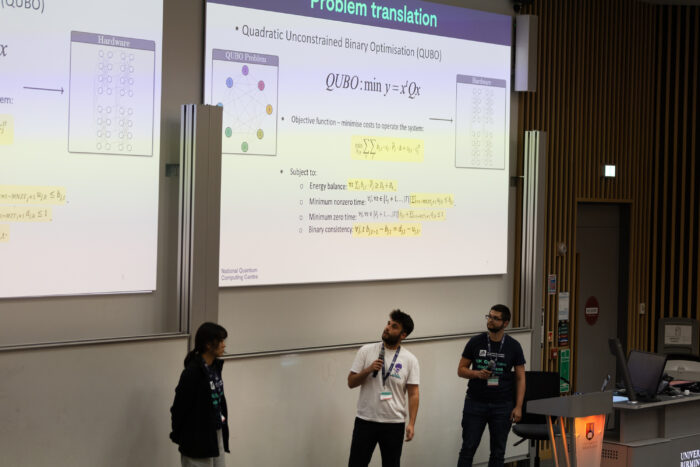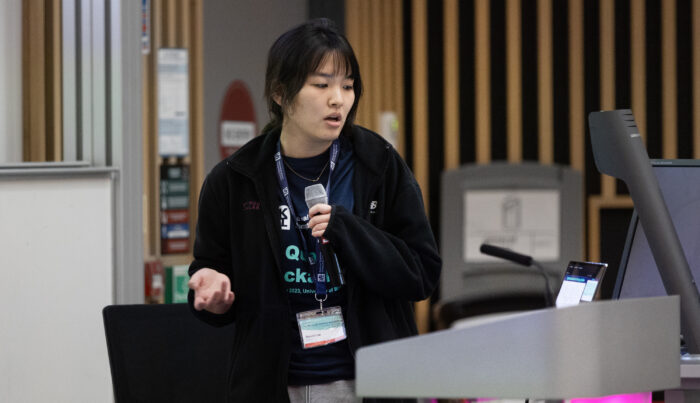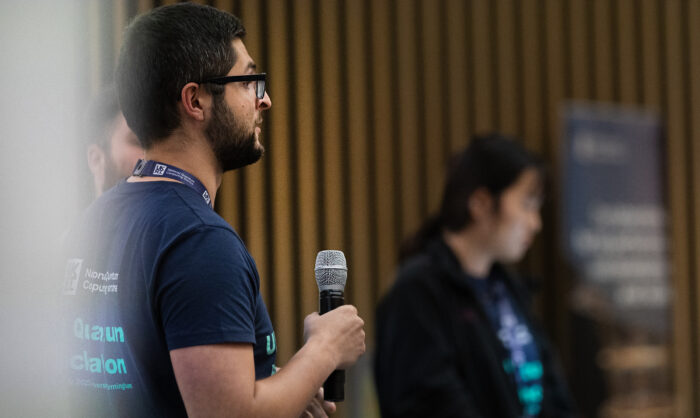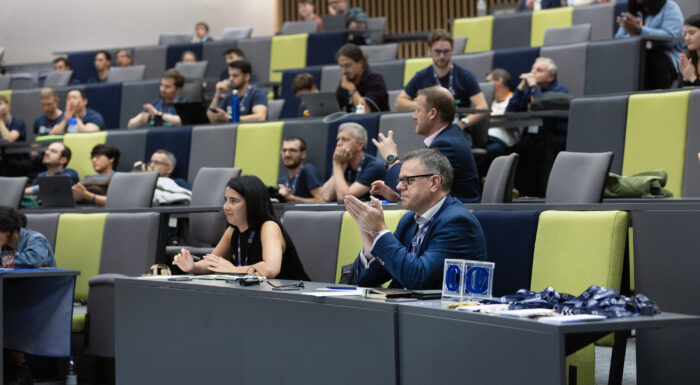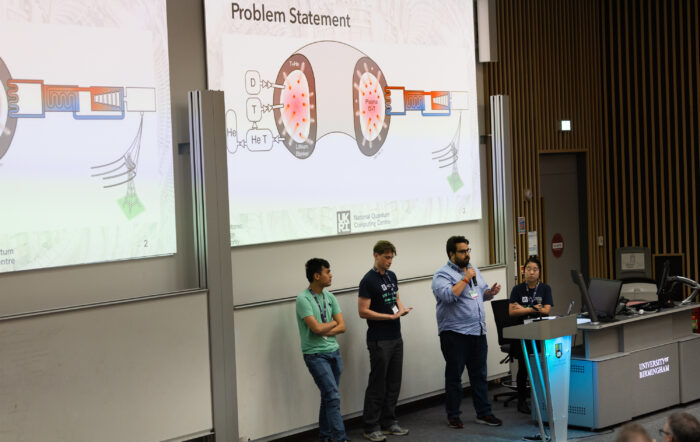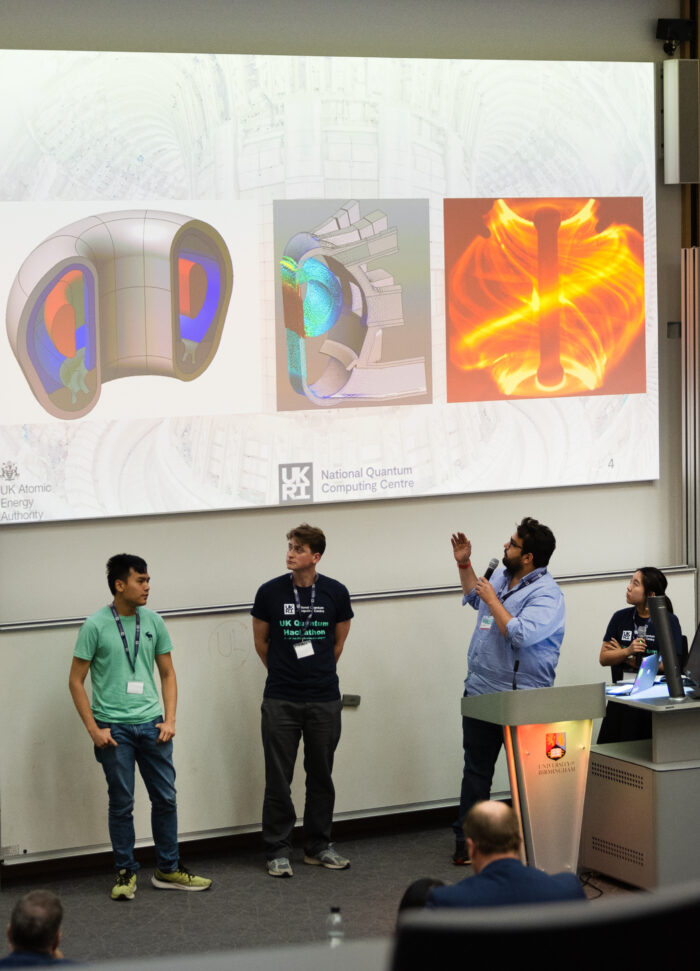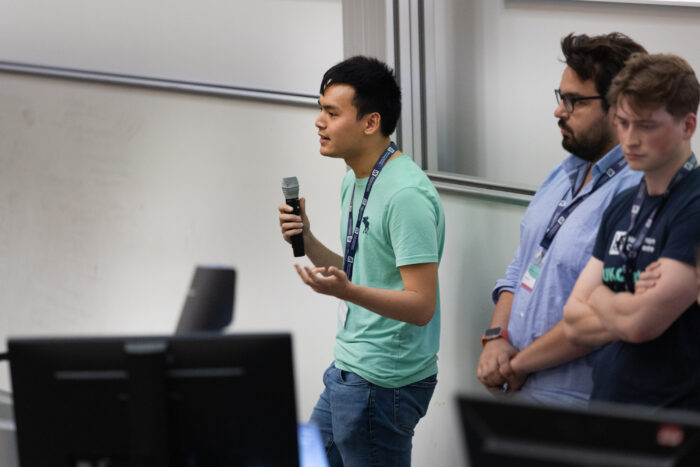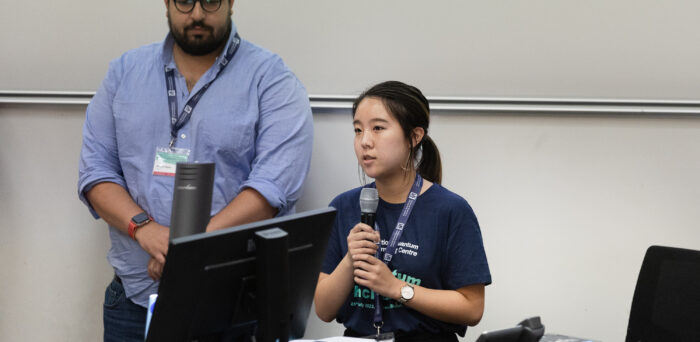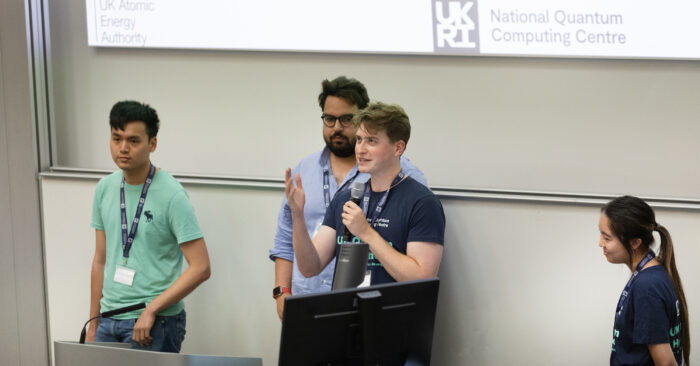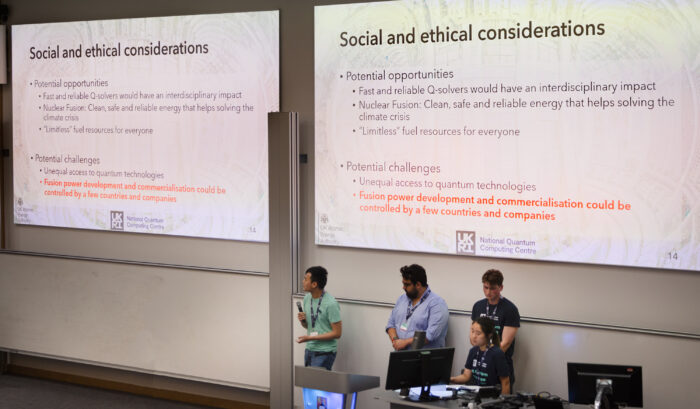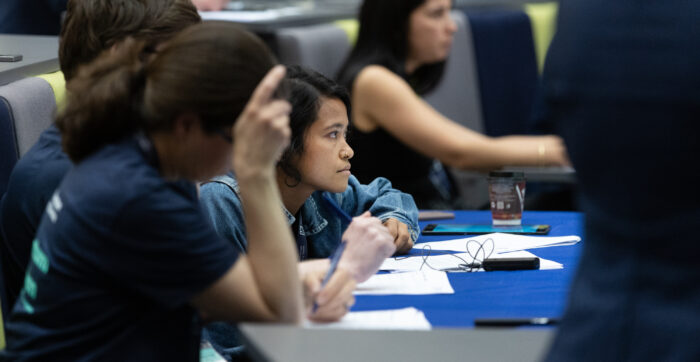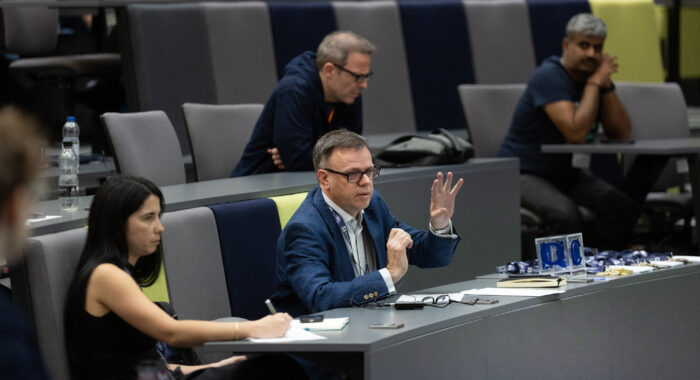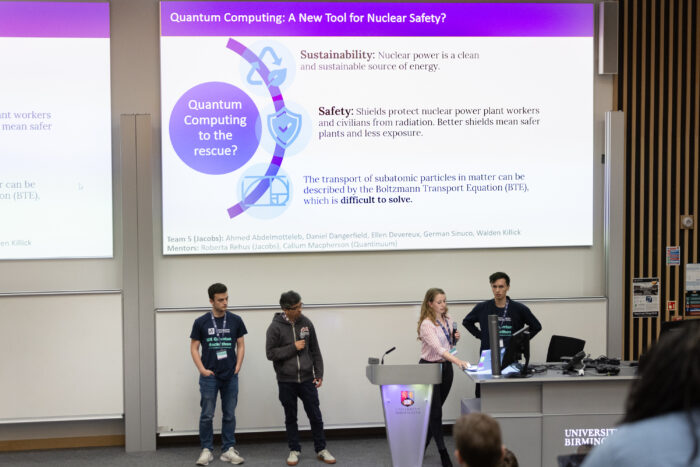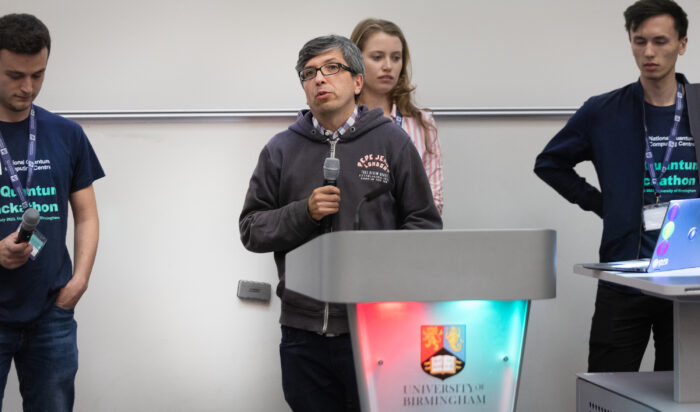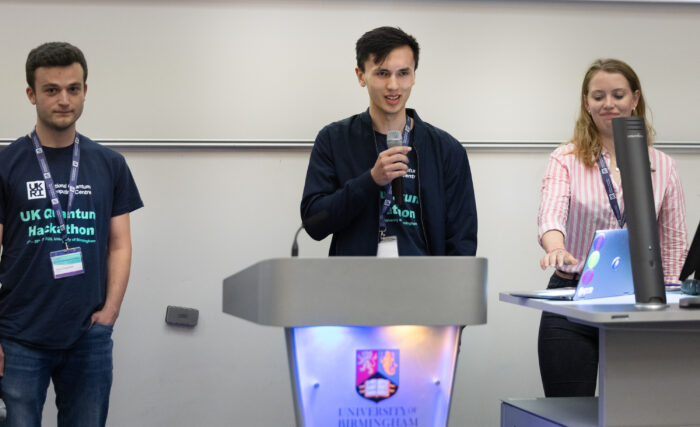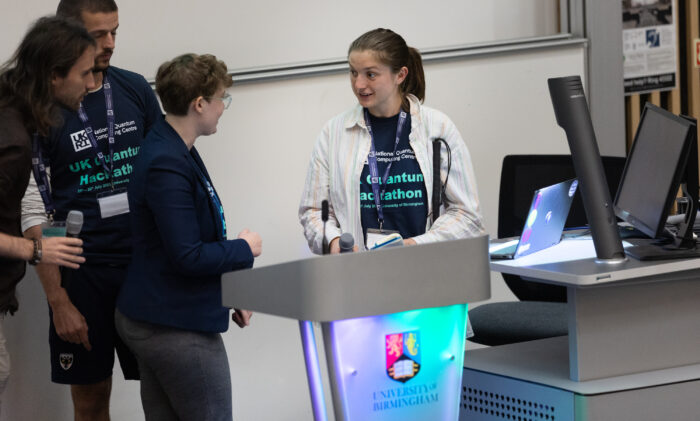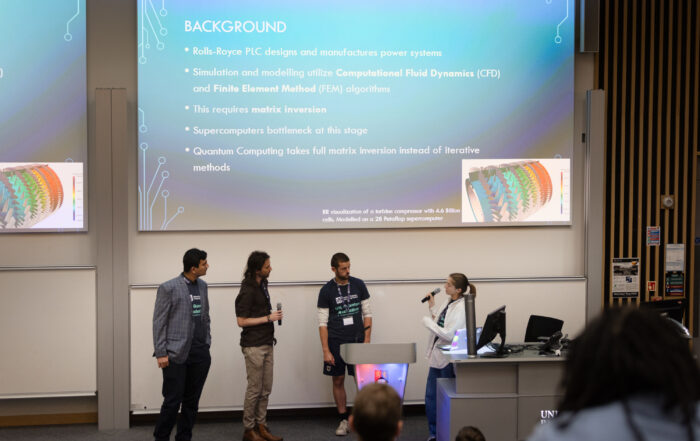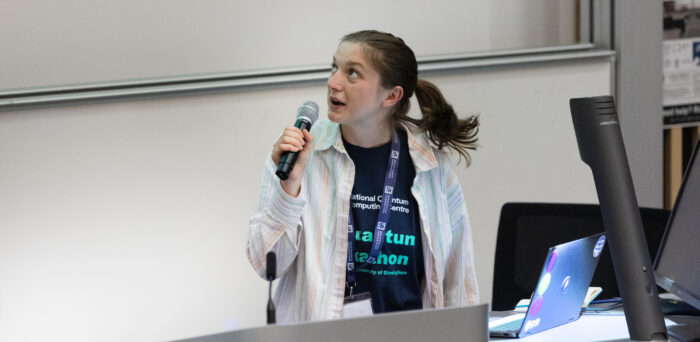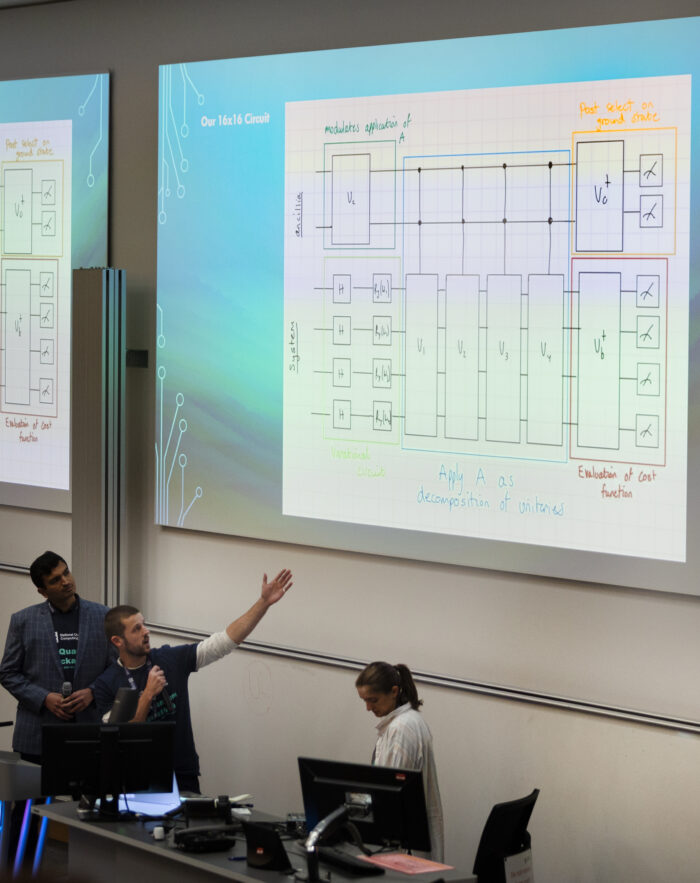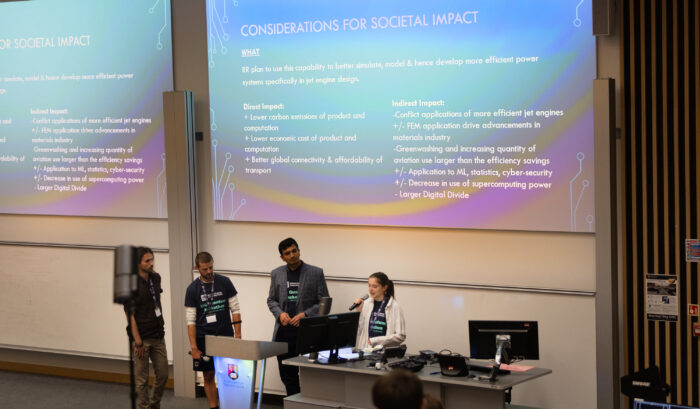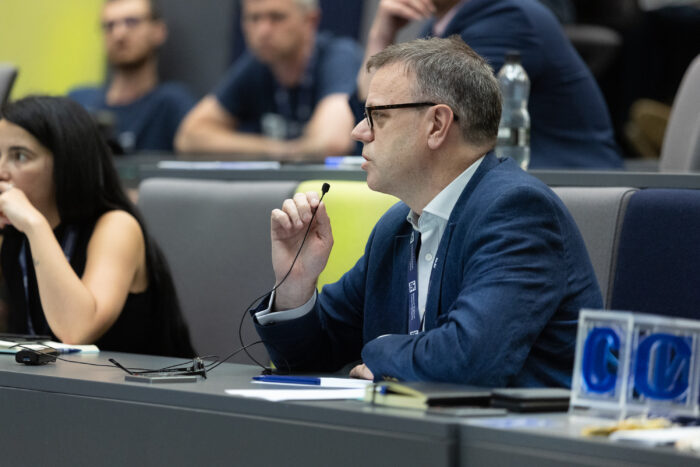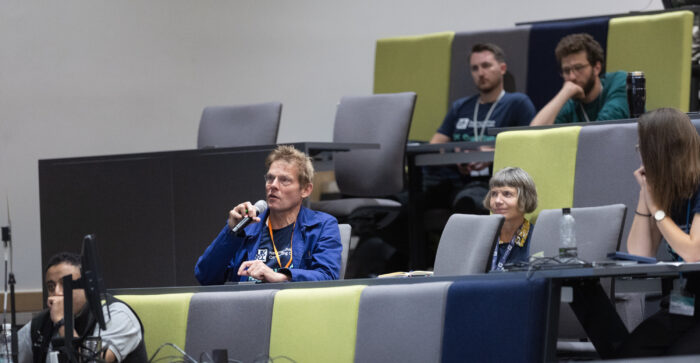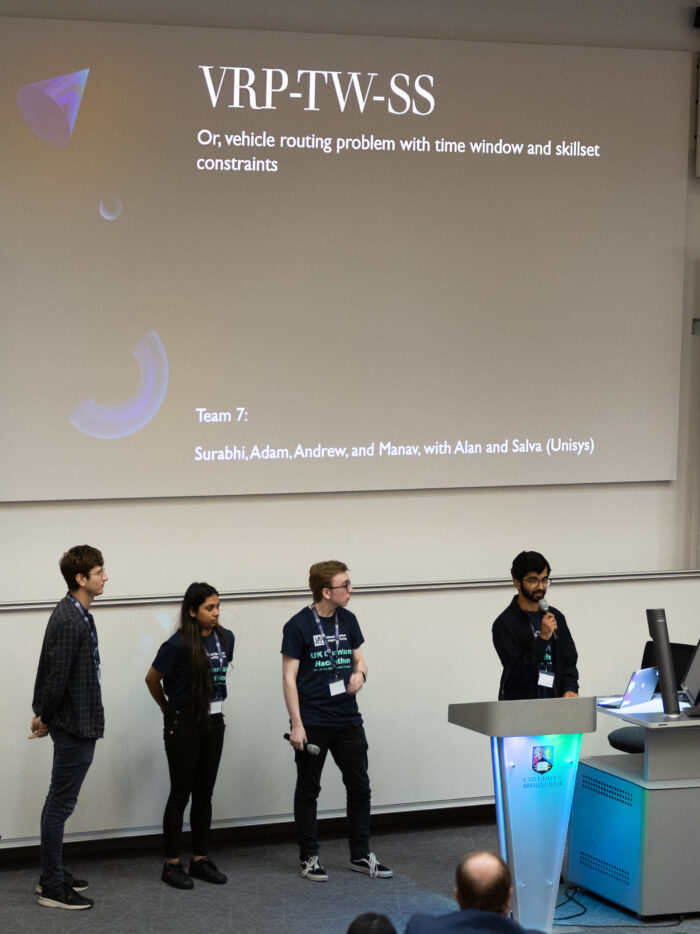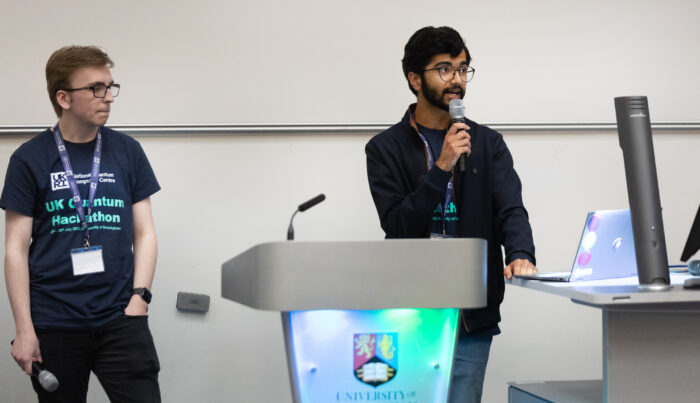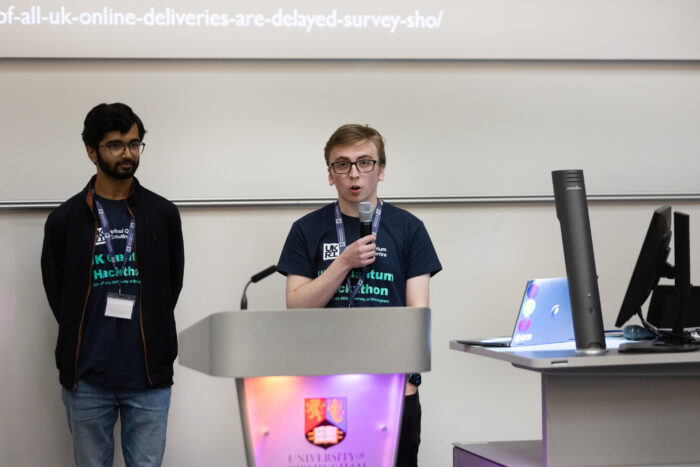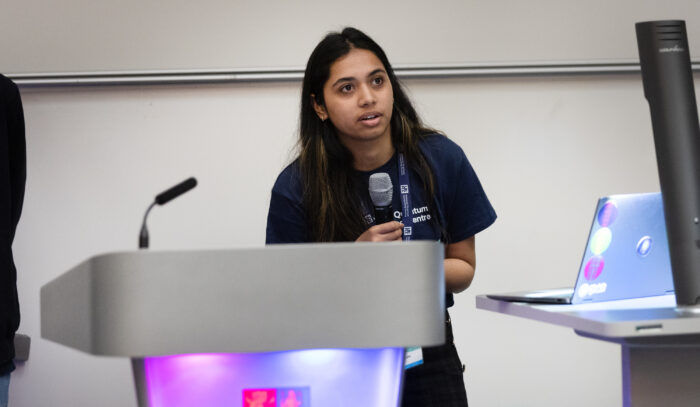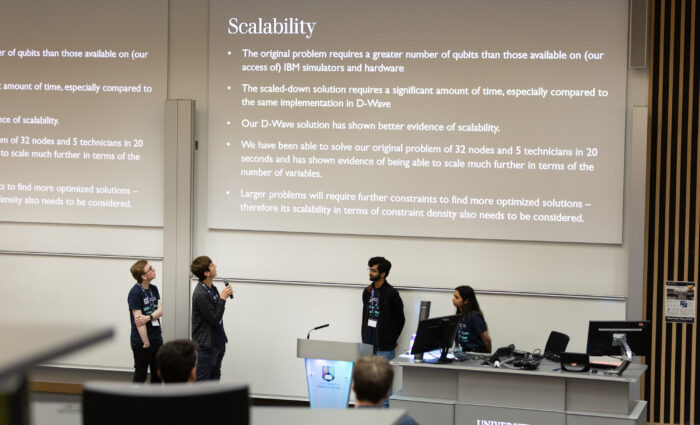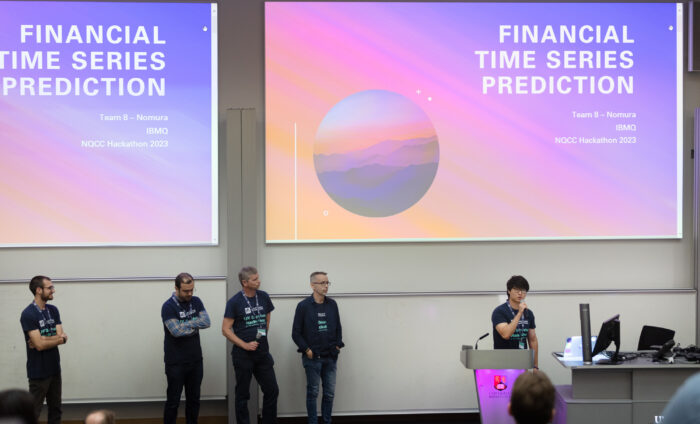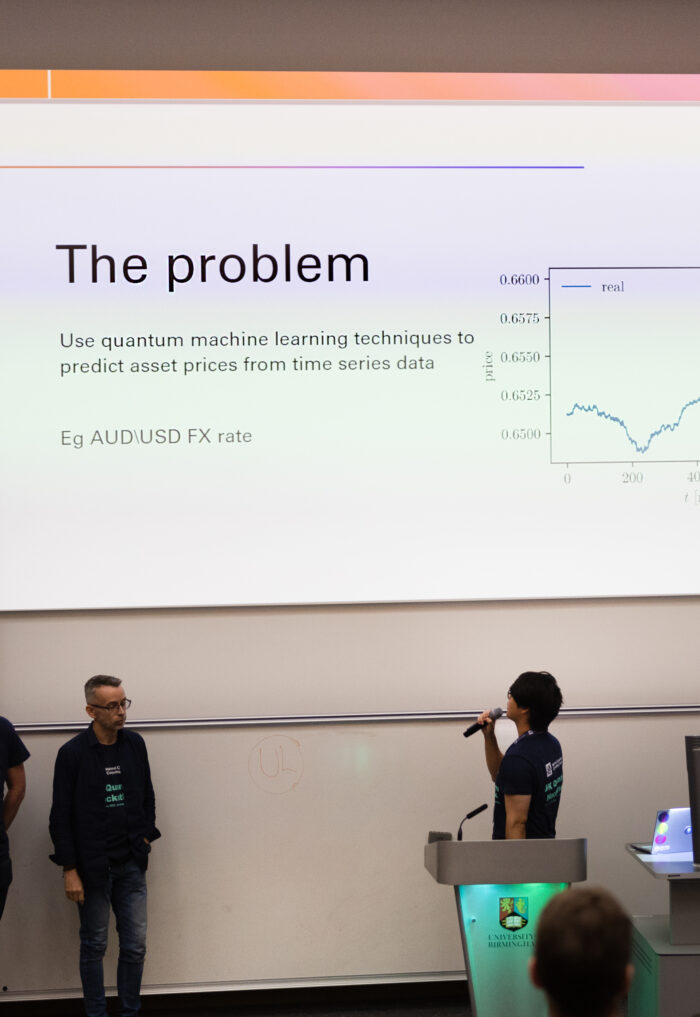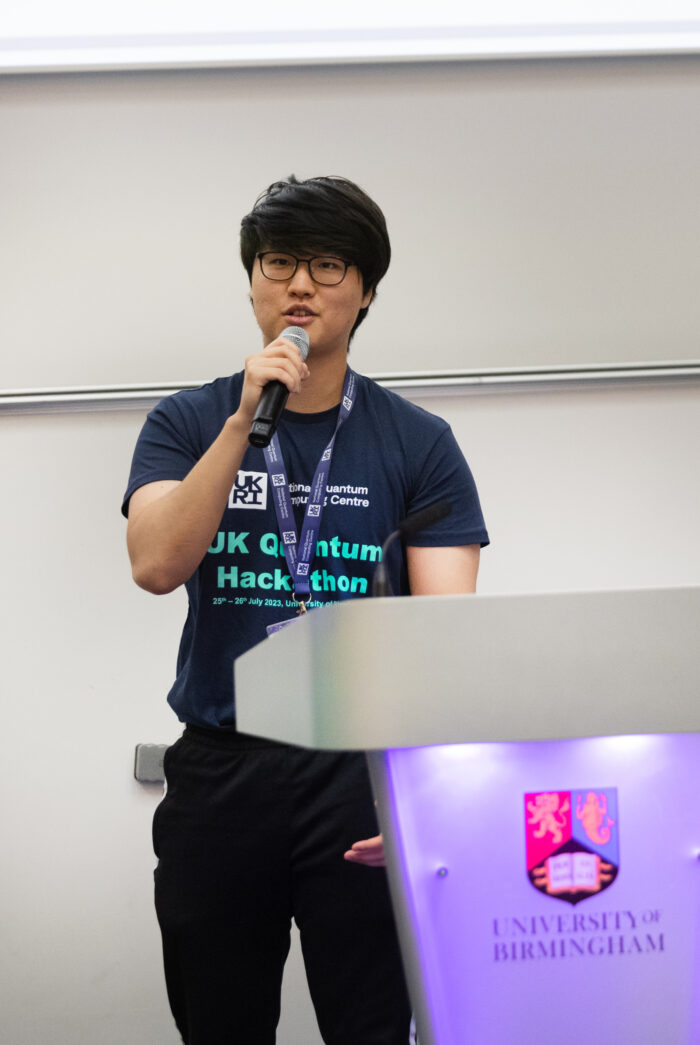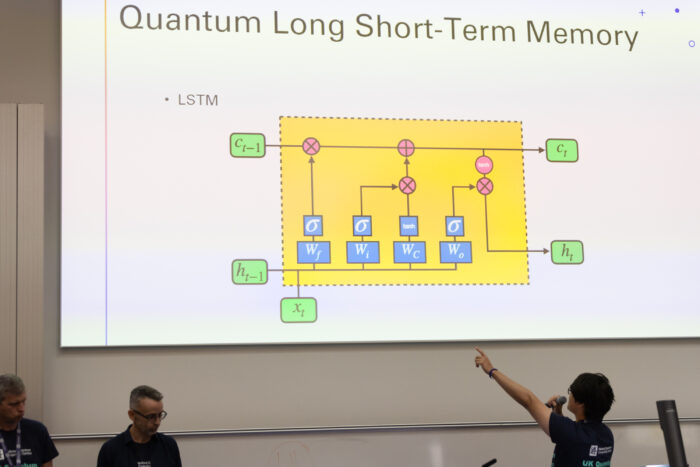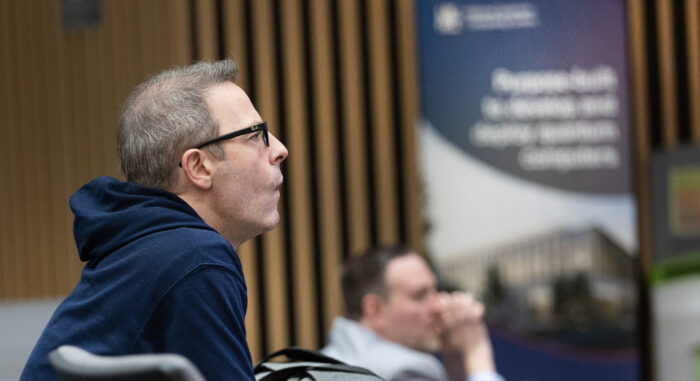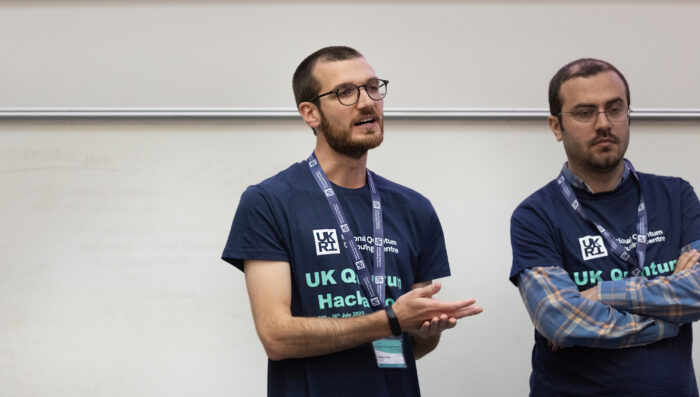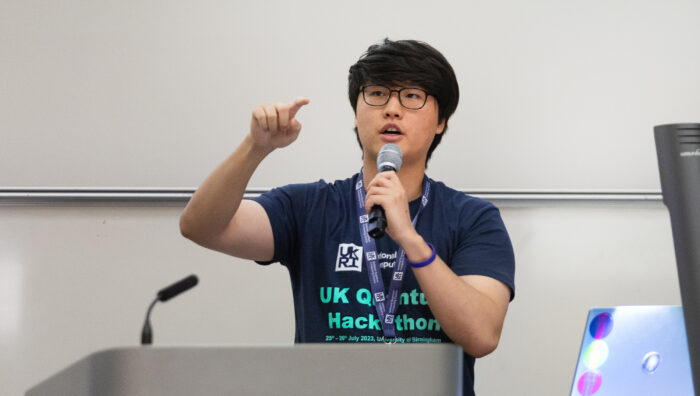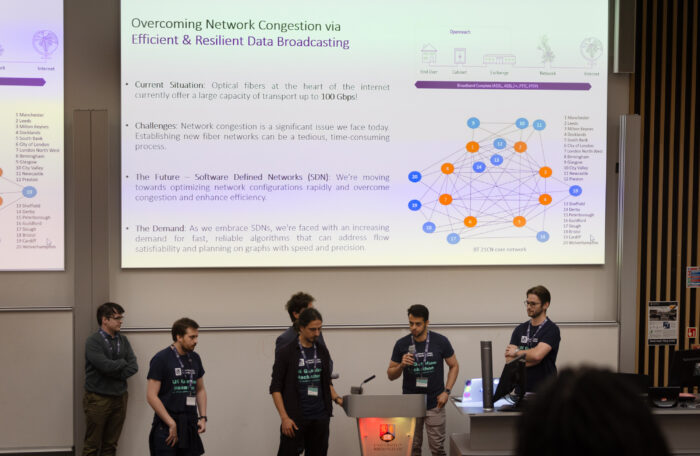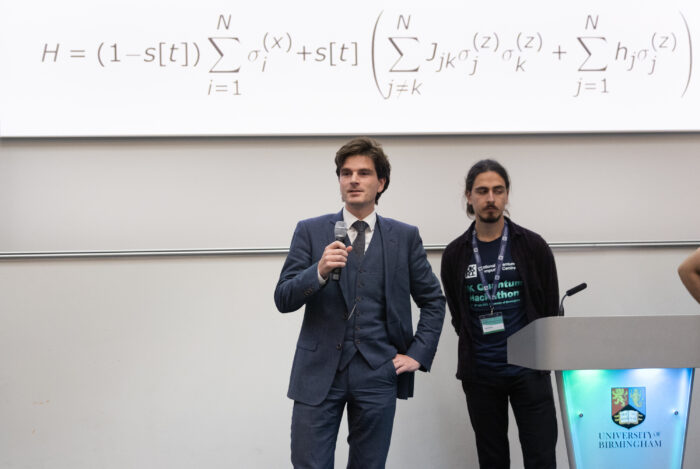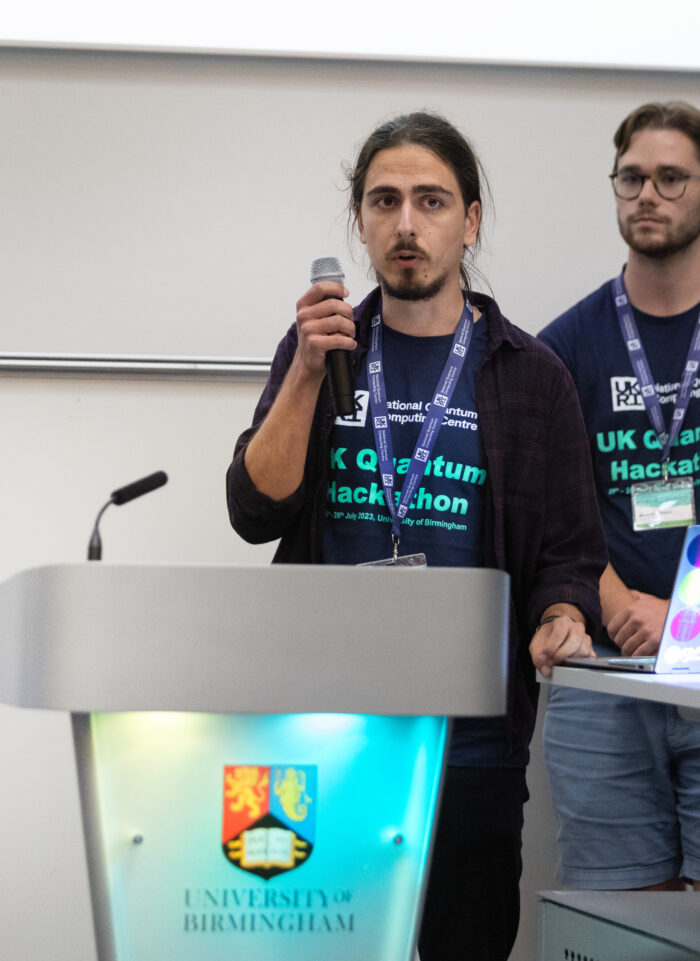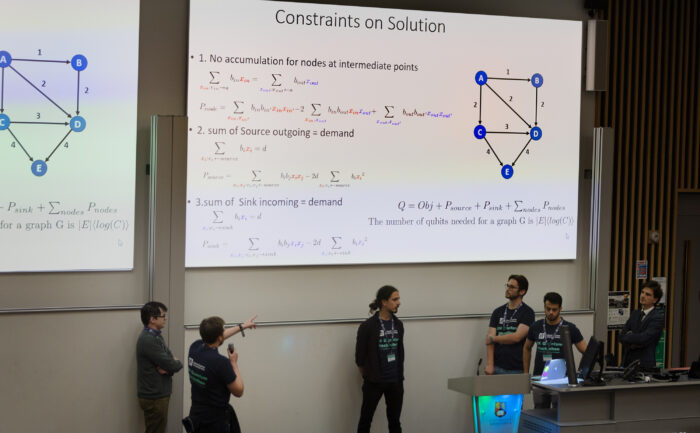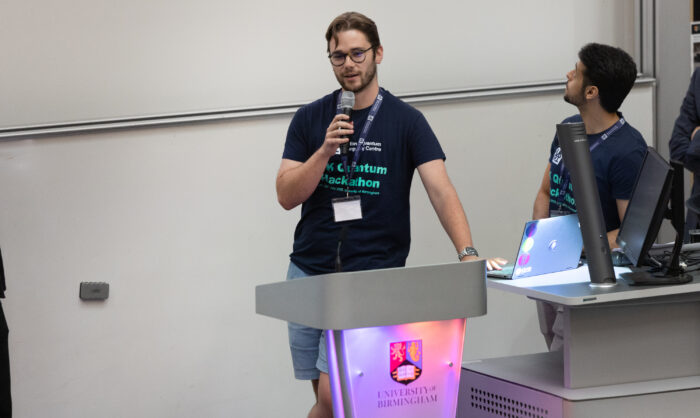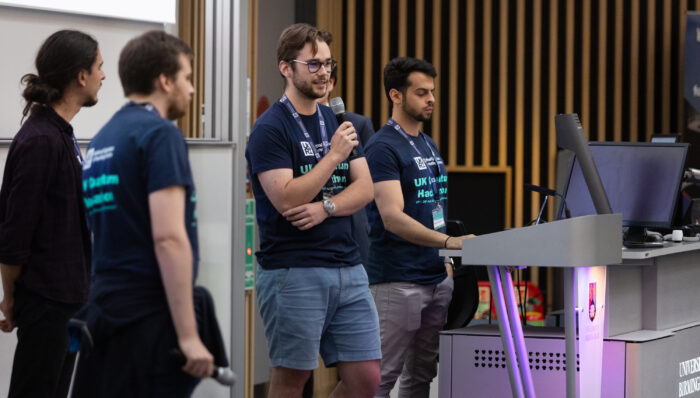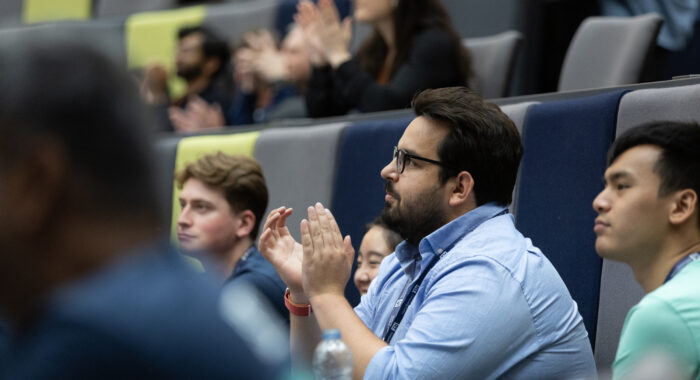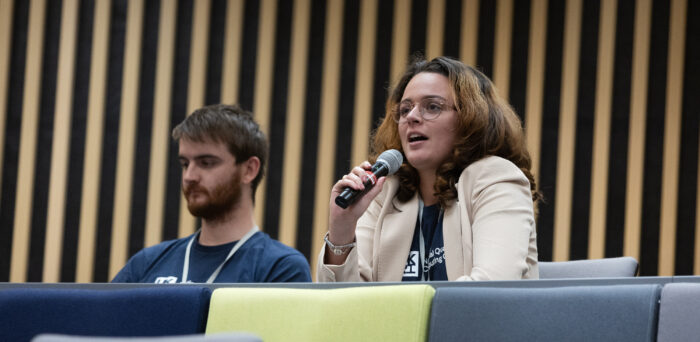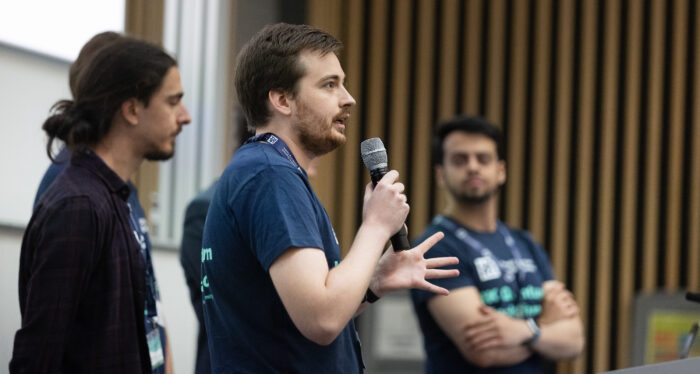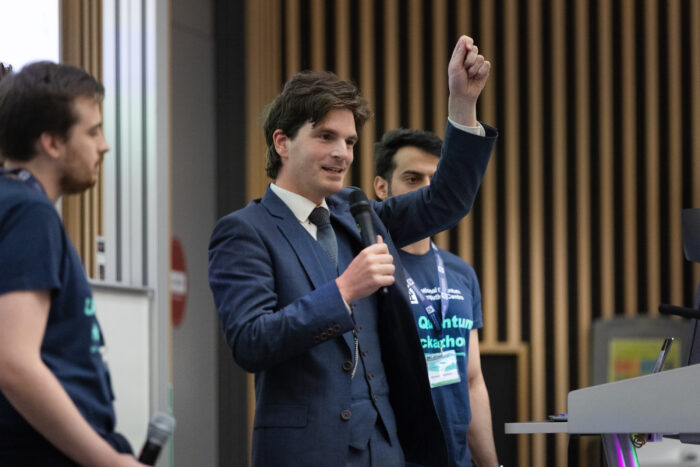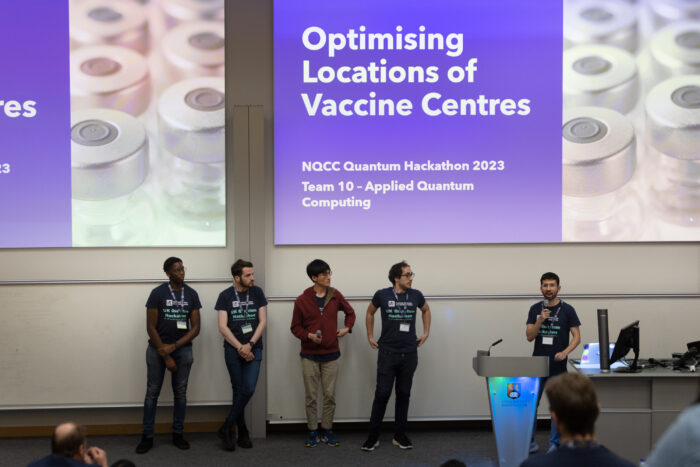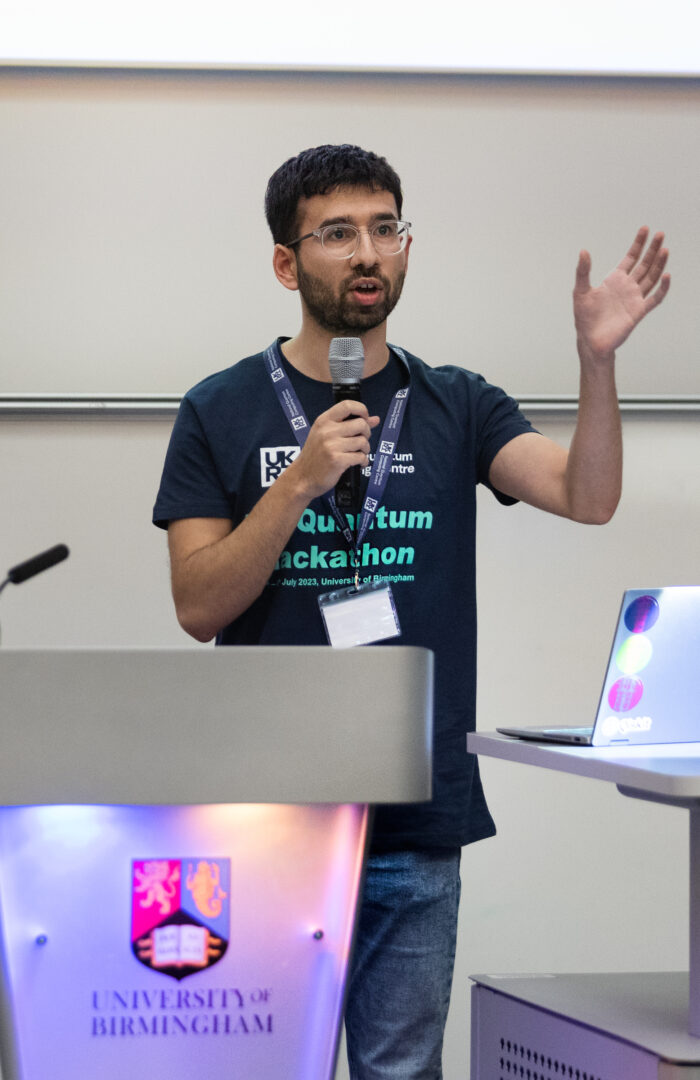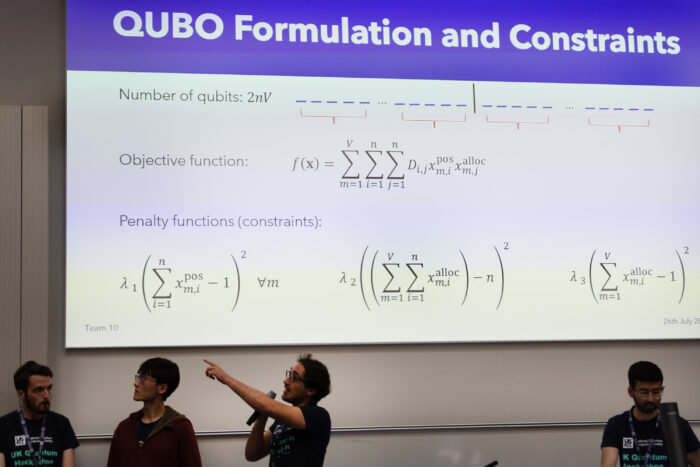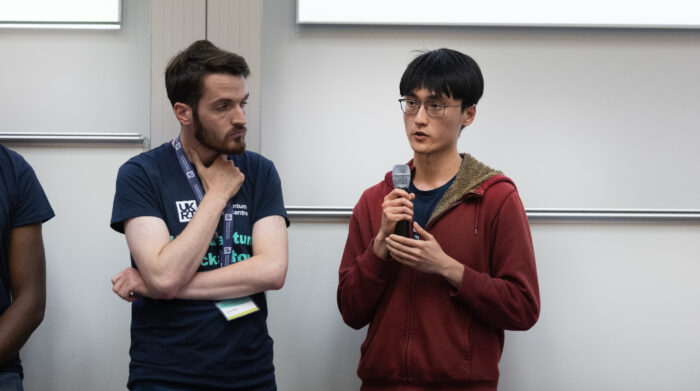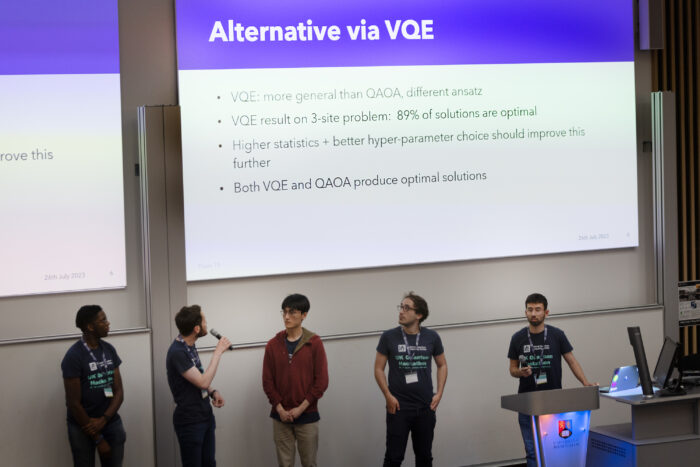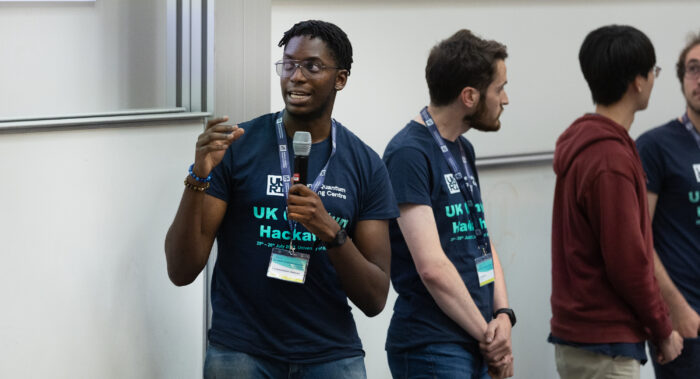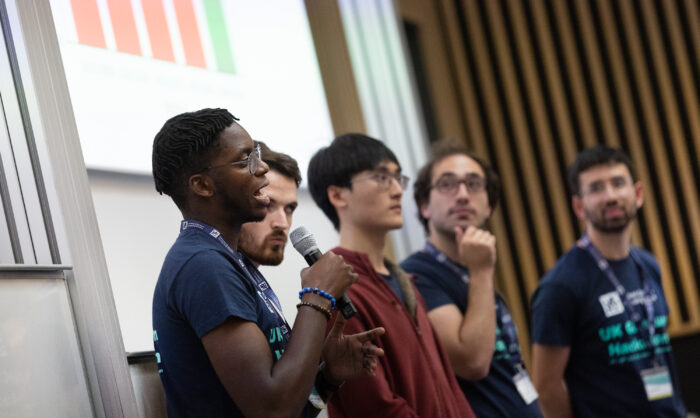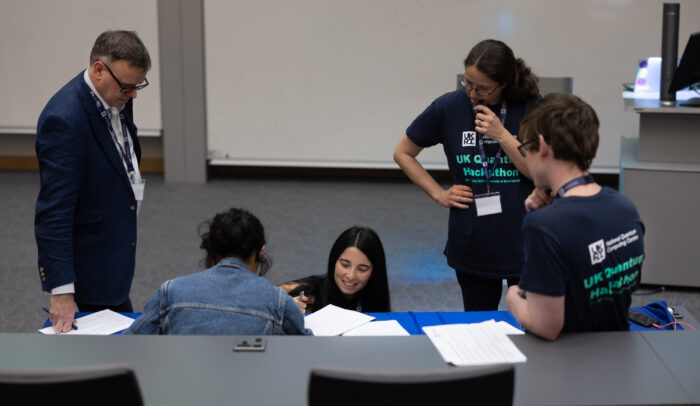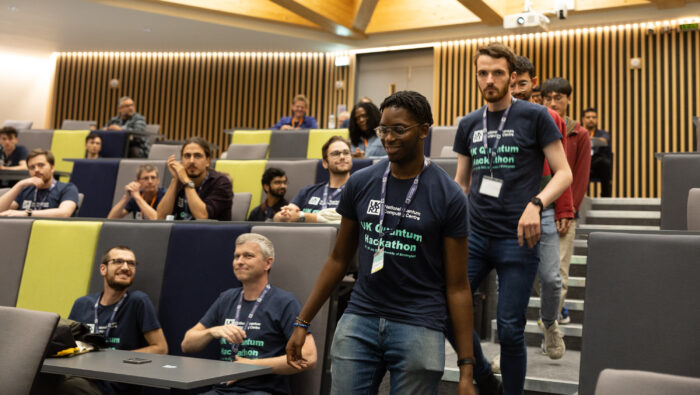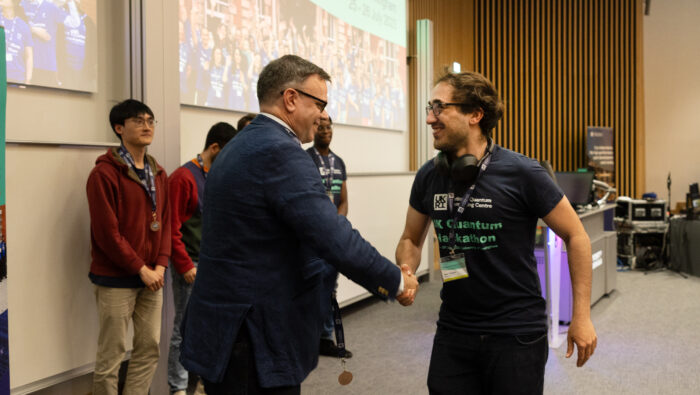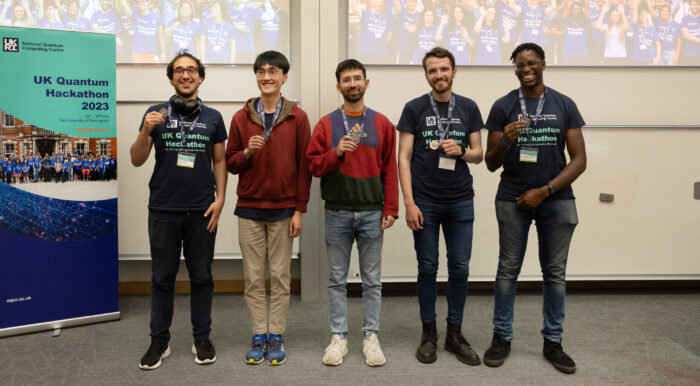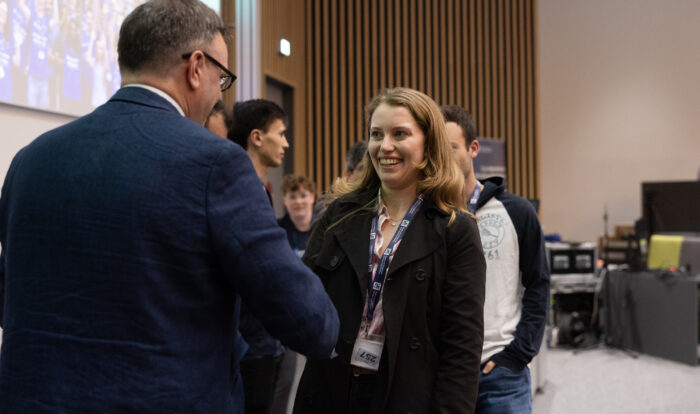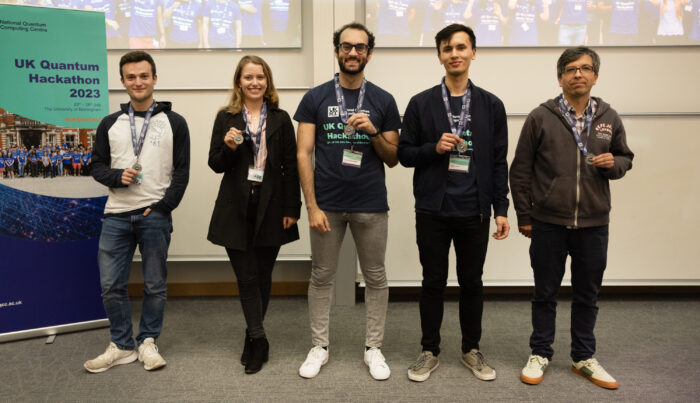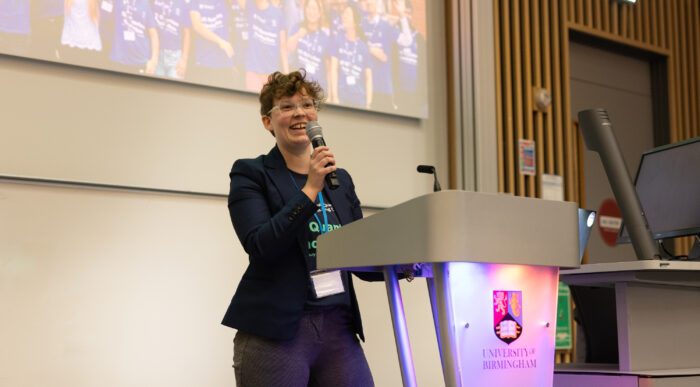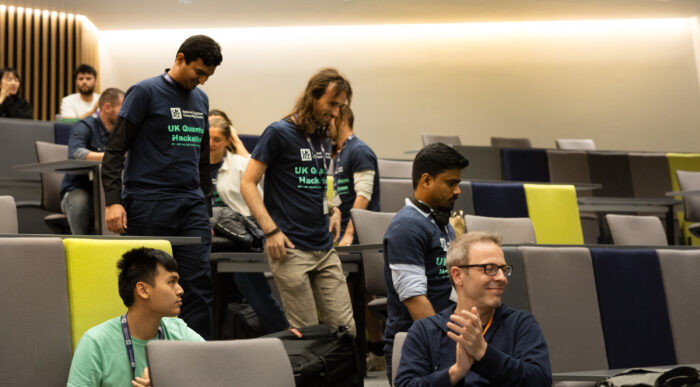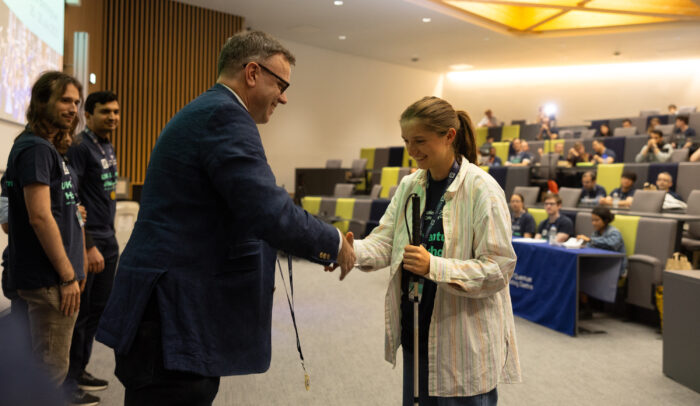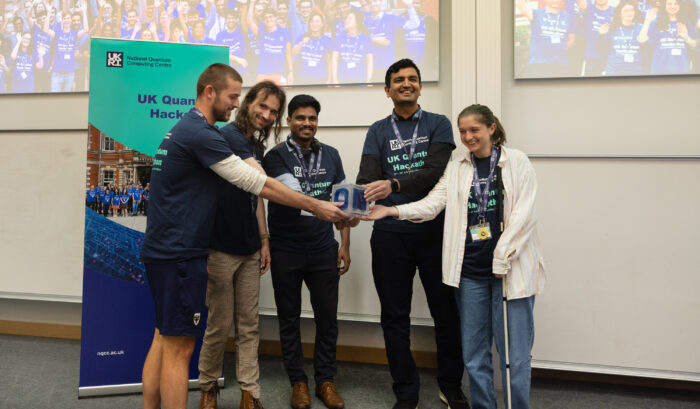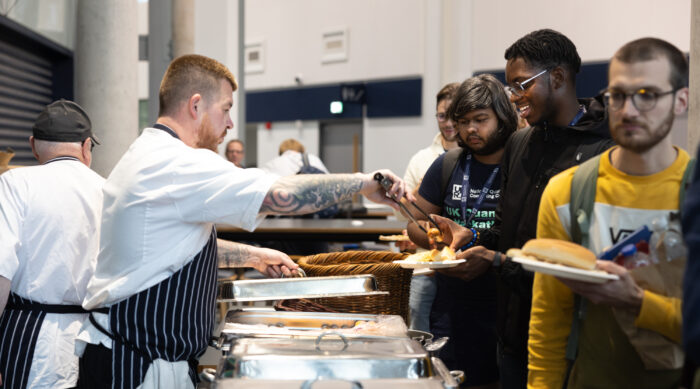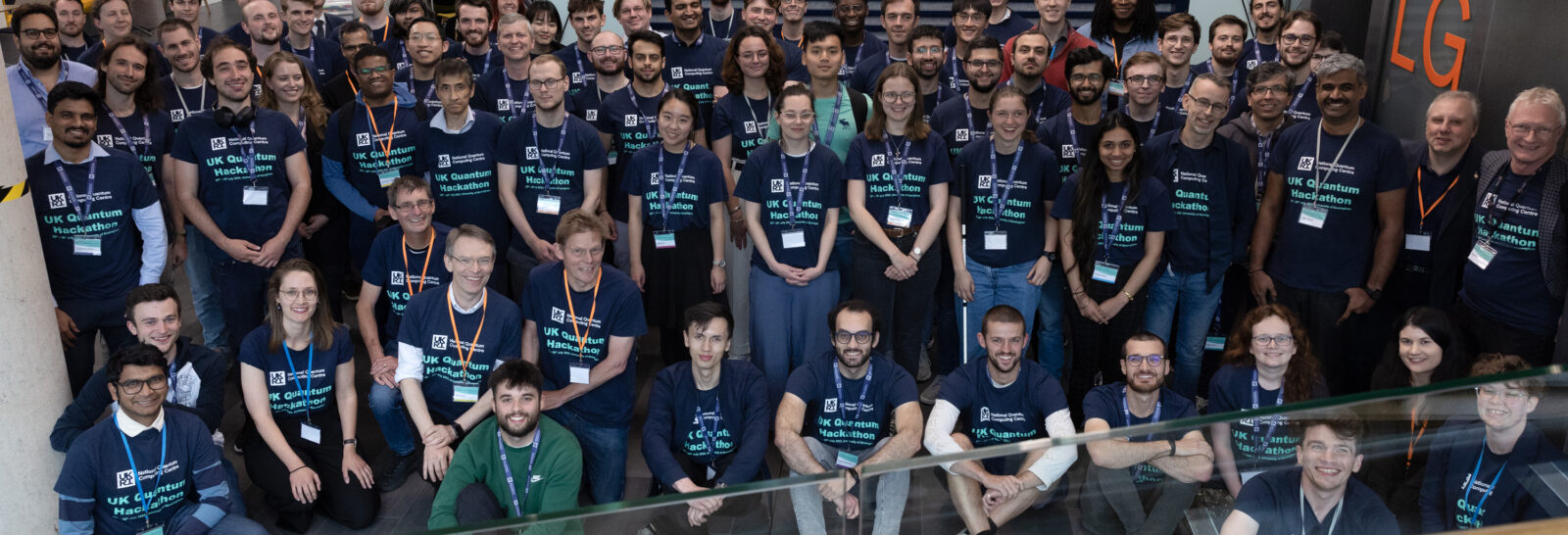The NQCC held its second UK quantum hackathon in July 2023 at the University of Birmingham. The hackathon is part of the NQCC’s user engagement programme – SparQ, aimed at exploration and awareness-raising for the current capabilities and limitations of quantum computing technology, as well as at nurturing the talent pipeline and convening stakeholders.
Read the Quantum Hackathon 2023 technical report.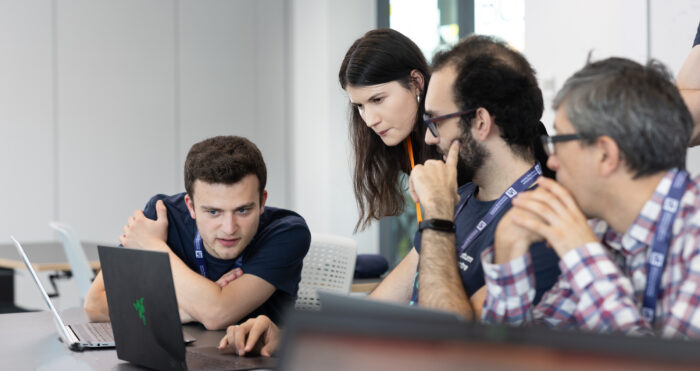
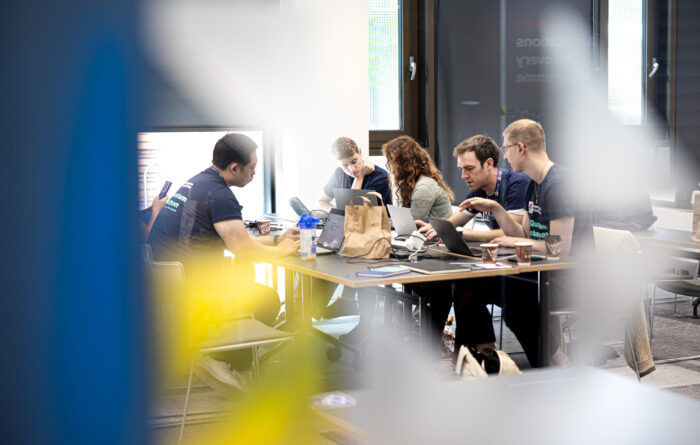
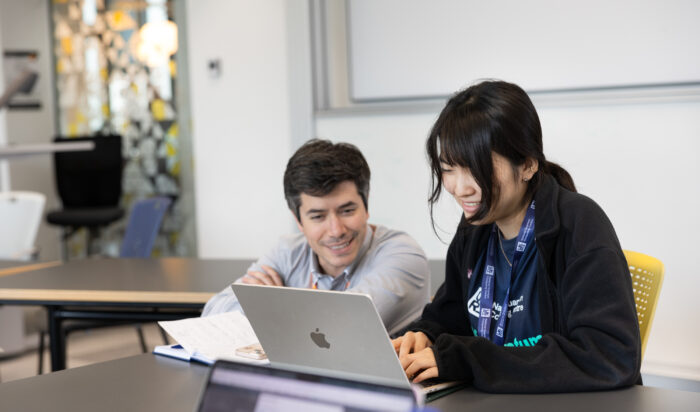
Hackathon offers glimpse of quantum potential
The calm and hushed corridors of the University of Birmingham’s Teaching and Learning Building offered little indication of the intense efforts being made by the ten teams taking part in the NQCC’s second quantum hackathon. They had been given just two days to devise quantum solutions to real-world problems set by end-users ranging from the NHS and the National Grid to Rolls Royce and financial specialists Nomura, and to test their approaches on hardware platforms from different technology providers.
Read the whole Physics World article.
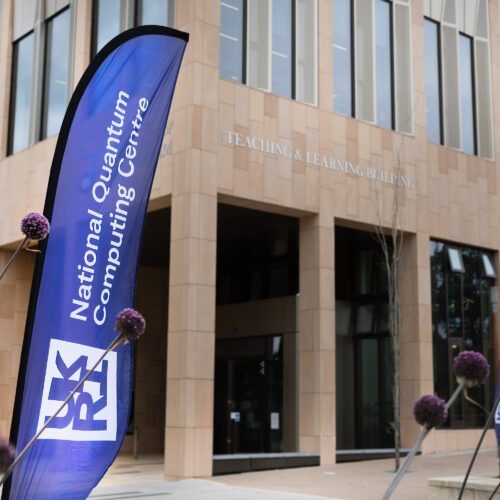
One of the primary objectives of the event was to build awareness of the current capabilities of quantum computing among different organisations and businesses, and to provide participants with hands-on experience in writing quantum algorithms and running them on a real quantum computer. The hackers were mostly PhD students and early-career scientists with varying levels of experience with quantum computing, while each team also included a technical specialist from one of the hardware providers plus an industry mentor to explain and contextualise the use case.
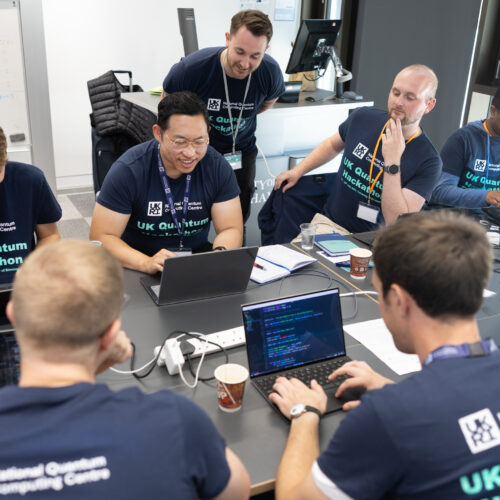
For the hackers, the event offered an opportunity to enhance their existing skills in quantum computing, learn about potential use cases in different industry sectors, and see how the technology might be exploited in other research fields. Some of them have already been working with quantum algorithms in their research projects. The hackathon offered an opportunity to enrich their knowledge of different coding techniques.
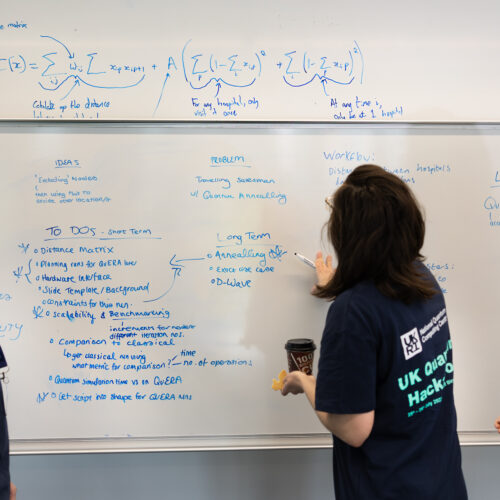
“It has been a great experience that has really allowed us to take a deep dive into a use case that is relevant for many of our customers. Our team has been exceptional, and delivering a solution within just two days shows that anything is possible when you have the right skills and the right interaction between business, research, and hardware specialists.”
Salvatore Sinno – R&D specialist at digital solutions provider, Unisys
“Quantum computing is quite a new area for us, and we wanted to gain an understanding of its current capabilities and limitations. We created a use case for the team based on a problem in nuclear fusion that we would normally study using classical simulation, and we wanted to see if we could tackle the same problem with a quantum computer. The team have developed some algorithms that in principle could solve the problem, but the hardware is still not yet mature enough to offer us a performance advantage but it’s a useful starting point, and it offers a way for us to understand what we need to do.”
Fazal Chaudry – Principal Systems Engineer, UKAEA
“The hackathon offered the chance to enrich my knowledge of different coding techniques. I’ve wanted to learn about a technique called equivariant embedding for a while, but it hasn’t been the top priority during my PhD. Having two days, where I can really focus on it has been really good, plus I have seen how this particular method can be applied to the problem of DNA sequencing.”
Annie Paine – PhD Student
“This year, we have more industry partners who are exposing our hackers to a broader range of use cases. There are also more companies providing access to their hardware platforms at this year’s event compared to last year. That’s a measure of the maturing technology landscape in quantum computing. It’s exciting to be able to explore the differences and similarities between the platforms, and to see what sort of performance can be achieved across the range of technologies we have available.”
Dr Michael Cuthbert – Director, NQCC
Image Gallery
